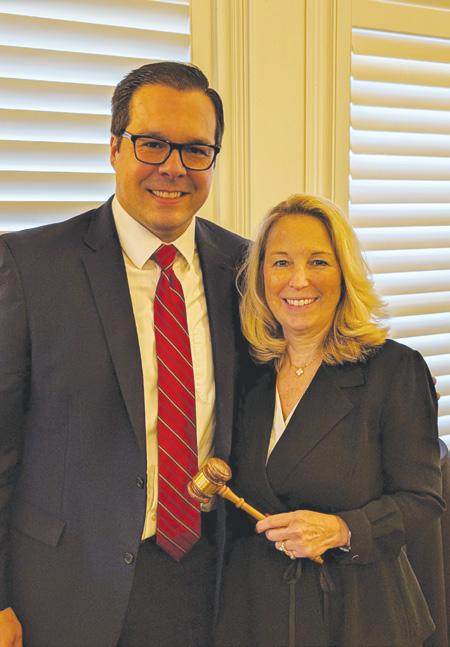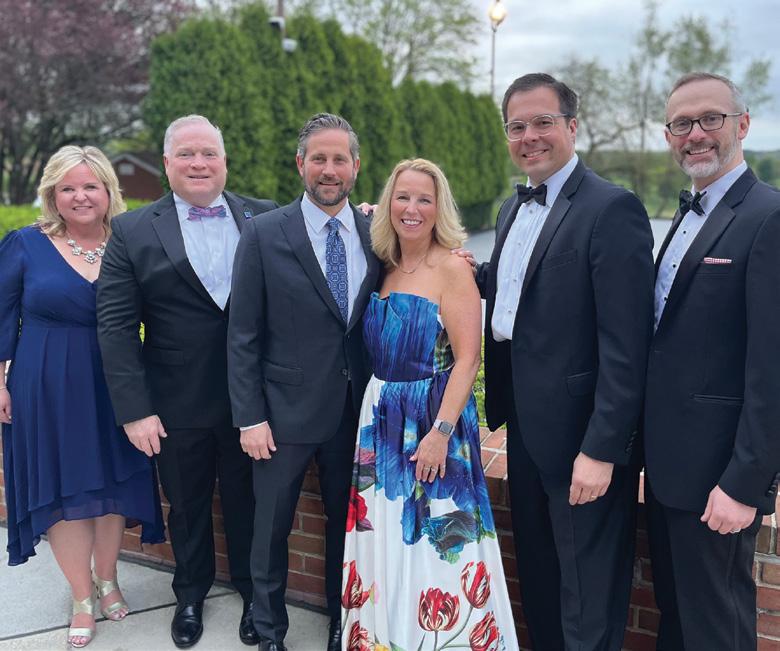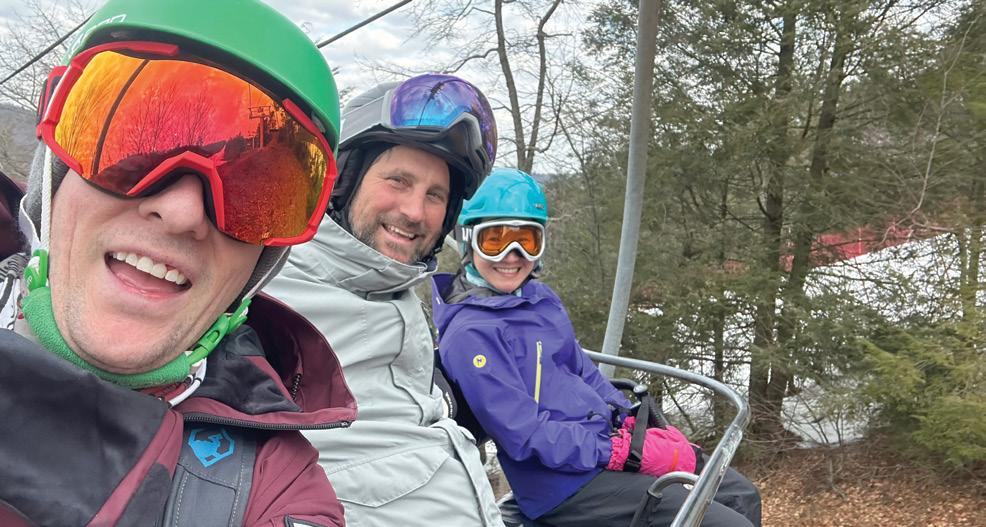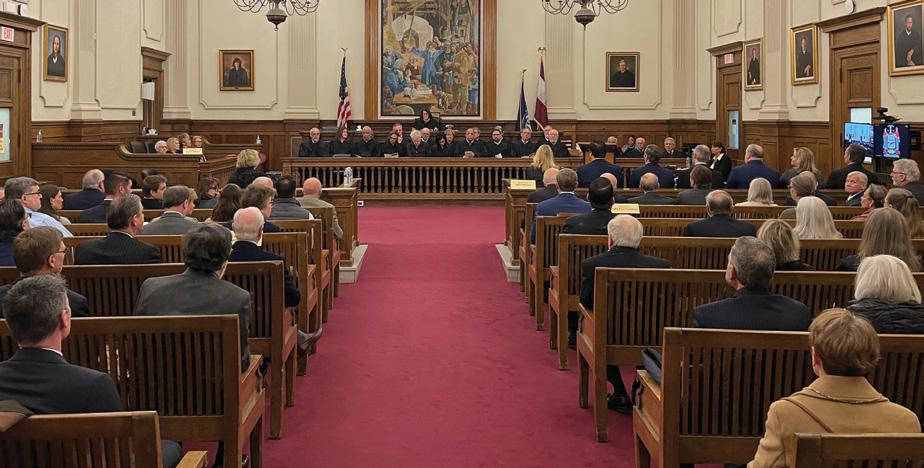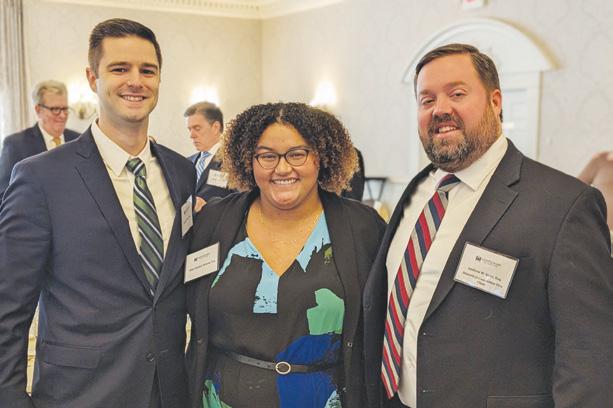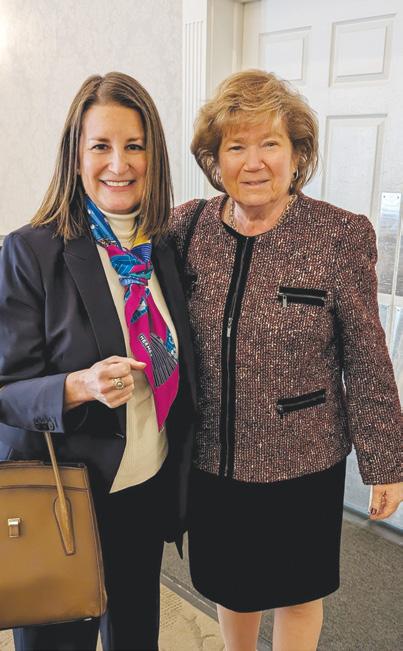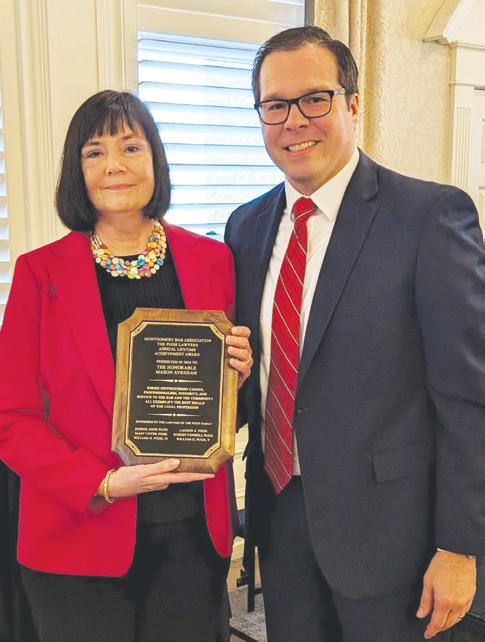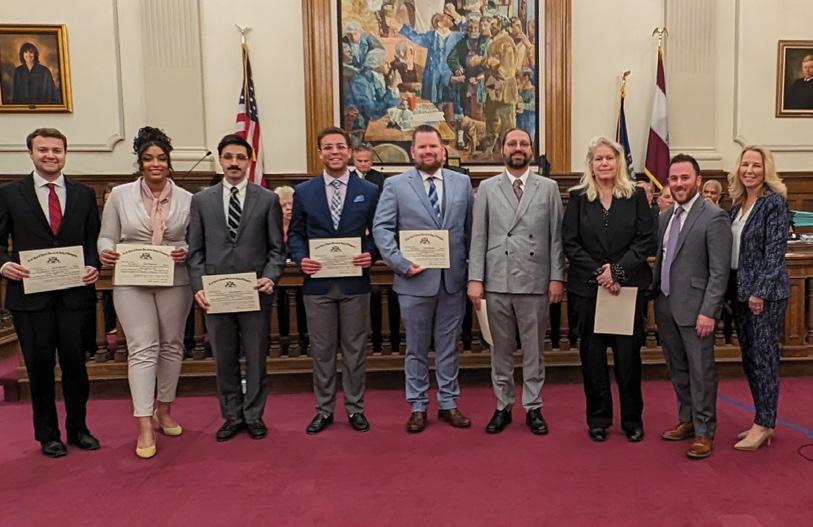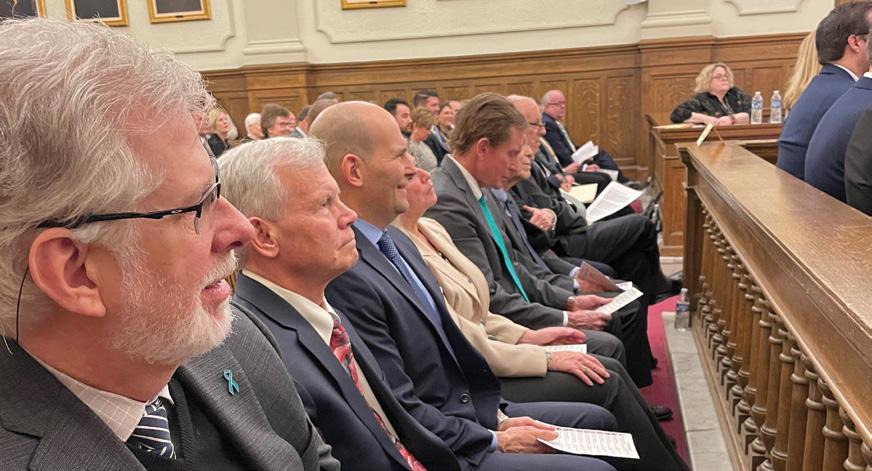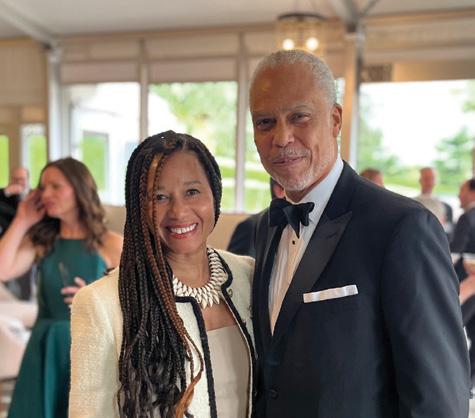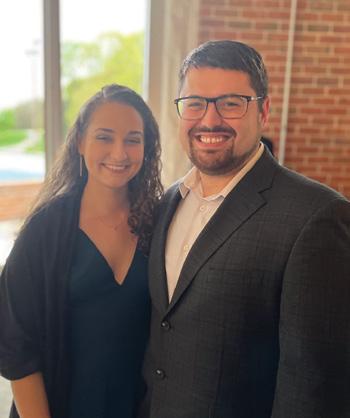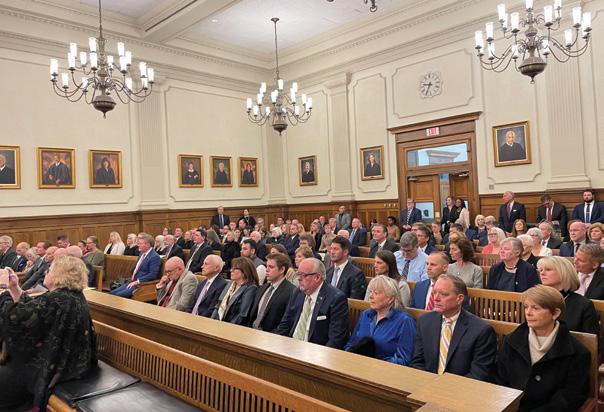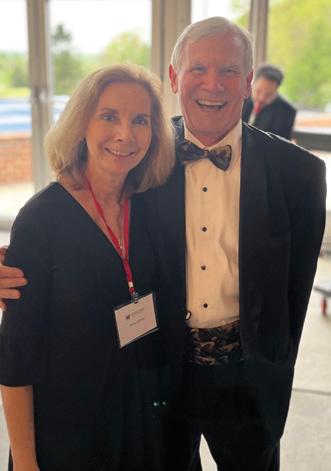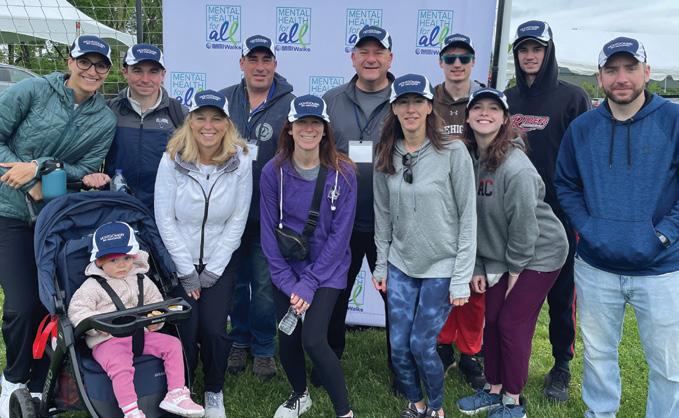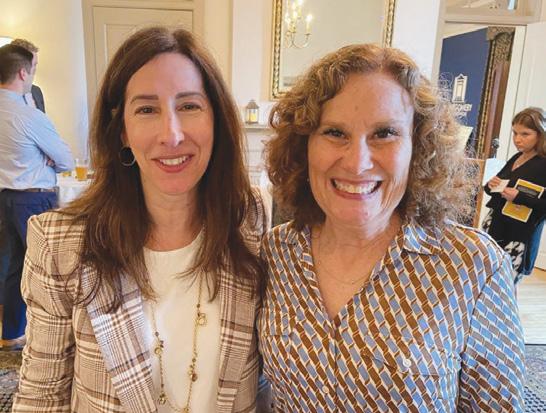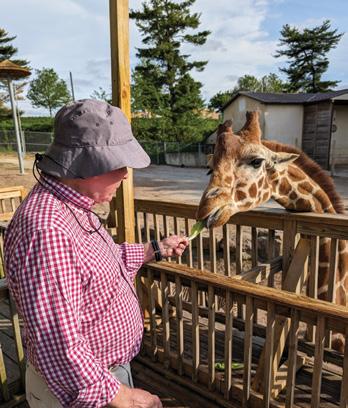










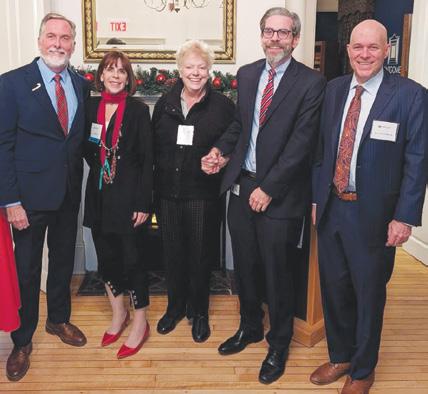











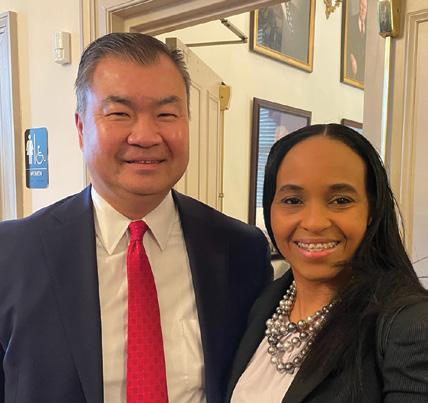





























Patricia Mosesso has been that professional for many partners just like you for over 15 years and focuses on creating opportunities and building successful relationships with attorneys and law firms. She knows the Philadelphia area’s attorney landscape from the inside out, which enables her to provide the best possible consultations. Her success is a direct reflection of the commitment, accountability and integrity she brings to each consultation. She and her team understand the critically important need for confidentiality and conduct themselves accordingly. With an unprecedented passion for facilitating a fit on both a personal and professional level why would you look anywhere else?
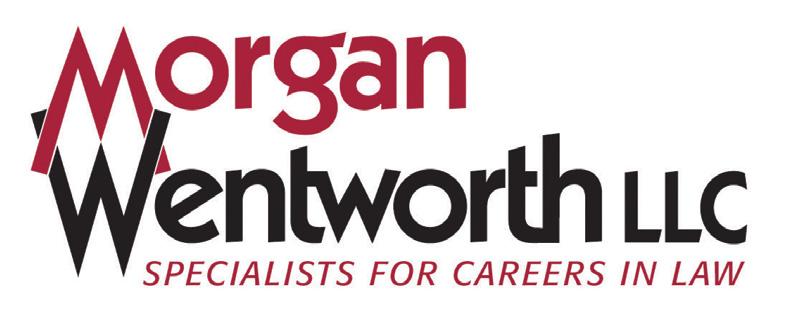
A. Mosesso
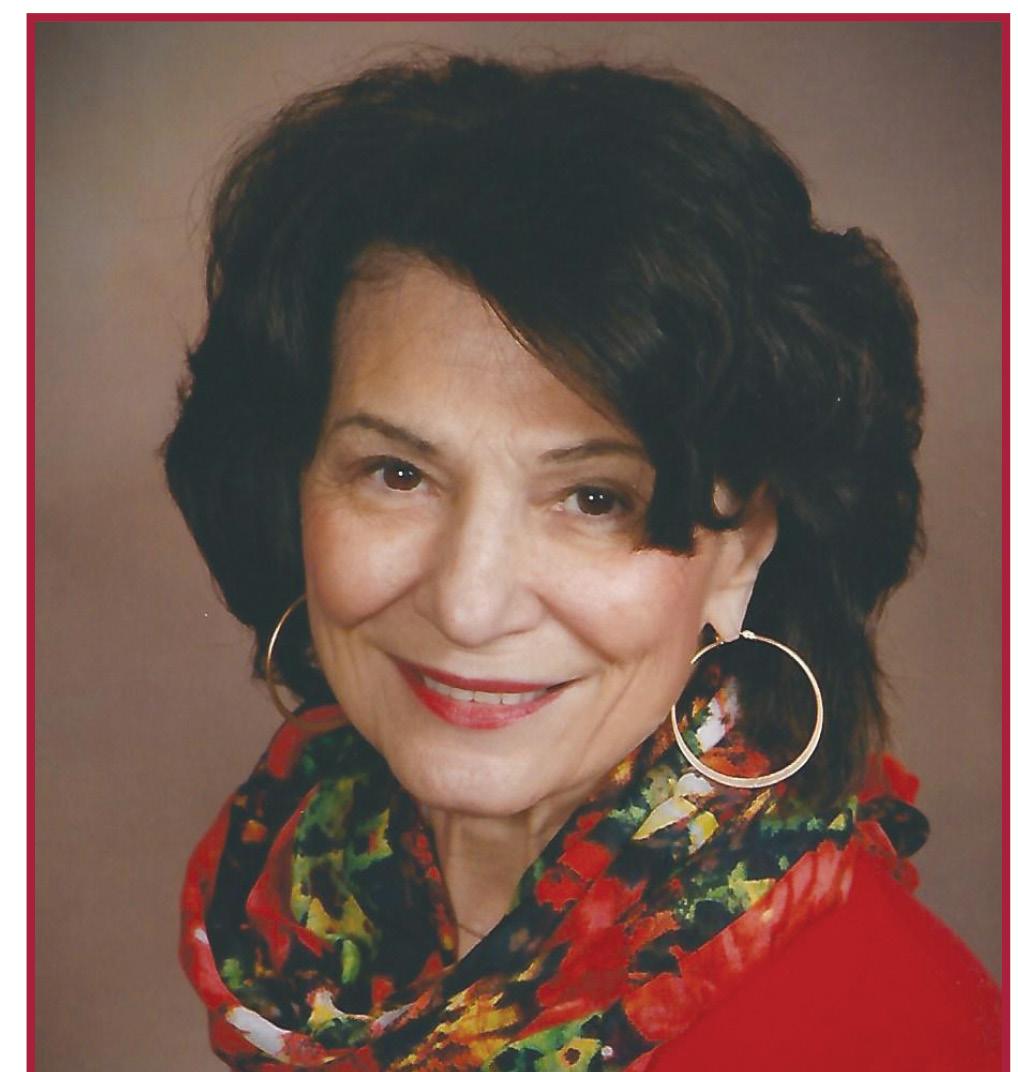
Partners with portable business, practice groups, and even small firms interested in making a change rely on our strategic guidance, high-level relationships, local market knowledge, and insight and discretion in making a transition.


Come Visit Our Newly Renovated Gun Store 43 Years est. + Growing!
New Pistol/Rifle Ranges
New Hepa Ventilation System
We Target All The Outdoor Sportsman’s needs…
•We offer one of the largest selection of guns, safes and Sporting goods and accessories in the Delaware Valley.
NEW Lower Pricing
•Compare + SAVE! – Shop Online!
•Over 1600 firearms in Stock
•Custom orders welcome
•Over 250 Gun Safes in stock
•We offer Pistol & Rifle Shooting Classes

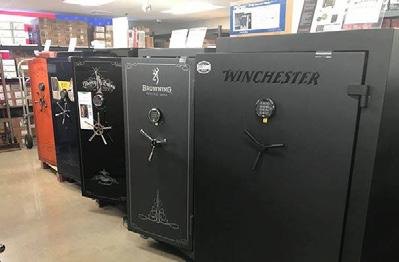

Serving the Profession and the Community since 1885
Lisa A. Shearman, Esq., President
Justin A. Bayer, Esq., Immediate Past President
Seth D. Wilson, Esq., President-Elect
Colin J. O’Boyle, Esq., Vice President
Hon. Joseph P. Walsh, Treasurer
Mary Kay Kelm, Esq., Secretary
Chairs
Gary J. Friedlander, Esq.
Franqui-Ann J. Raffaele, Esq.
Jules Mermelstein, Esq.
Vice-Chair
Gregory Gilston, Esq.
MBA STAFF
Hazel Bergquist, Accounting Manager
Jessica Deazle, Lawyer Referral Service and Front Office Coordinator
Jessica Gambone, Montgomery County Law Reporter Desktop Publisher
Jim Mathias, Director of Marketing, Development, and Public Affairs
Joe Schiele, Facilities
Sherry Sutton, Membership Coordinator
Denise S. Vicario, Esq., Executive Director
Megan Ware, Event and CLE Coordinator
Sandy Whittington, Accounting
The SIDEBAR Committee invites articles and news information of interest. Please send content to: MBA, c/o SIDEBAR Committee, P.O. Box 268, Norristown, PA 19404-0268 or email: sidebar@montgomerybar.org.

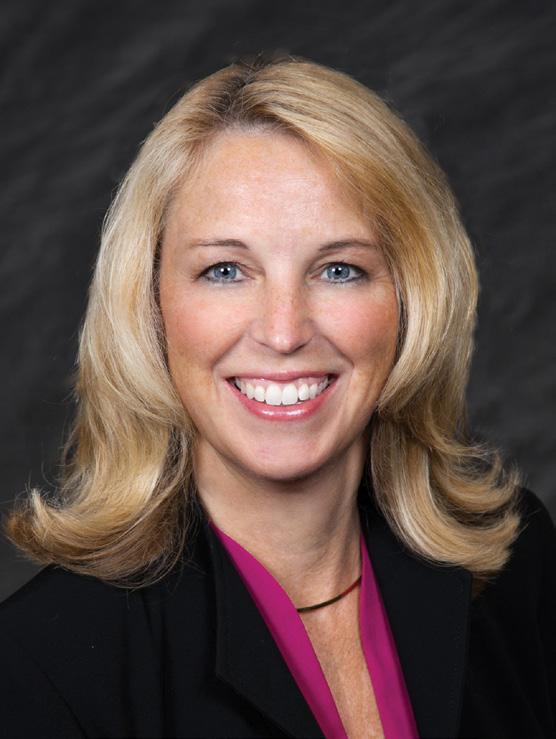 Lisa A. Shearman, Esq.
Montgomery Bar Association 2024 President
Lisa A. Shearman, Esq.
Montgomery Bar Association 2024 President
As I write my President’s Message, it has been 100 days since the Annual Business Luncheon and the passing of the gavel from Past President Justin Bayer to me. These first four months as President have been exciting, educational, and definitely enjoyable. I appreciate all the support I have received from my firm, the officers, our members and especially the Bar Association staff. They truly work hard behind the scenes to make it look seamless. I am especially excited about the launch of the new Pro Bono and Volunteer Opportunities page on the MBA website. I hope you take the time to check it out and find it a useful resource to get involved in pro bono and community activities. Please let us know if you have any pro bono events or community service events to include.
As we highlight membership in this Sidebar issue, I wanted to share how I got involved with the MBA and the value of my membership in this Bar Association. The quote “life is what you make it, so make the best of it” highlights how my membership with the MBA evolved. Having been an active member of the Lackawanna Bar Association as a young attorney, I knew the value of being involved in a professional association.
When I left Scranton and began working in Montgomery County, I joined the MBA. Initially, with a young daughter and only working part time, I would attend a meeting here or there. It was difficult to manage parenting, working, and being active in the MBA with other community activities I was engaged in. However, the more meetings and events I attended, the more wonderful and great people I met who also were navigating parenting and working. Pamela Tobin was one of the first people I met. She was the Chair of the Women in the Law Committee. I had started attending





Facebook.com/MontgomeryBarAssociation
Twitter.com/Montgomery_Bar
LinkedIn/Company/Montgomery-Bar-Association
YouTube.com/user/MontgomeryBarAssociation
Instagram.com/montgomerybarassociation
MONTGOMERY BAR ASSOCIATION
BUSINESS HOURS:
Monday thru Friday
8:30 AM - 4:30 PM
ADDRESS:
100 West Airy Street
P.O. Box 268, Norristown, PA 19404-0268
PHONE AND FAX:
Phone: 610-279-9660
Fax: 610-279-4321 & 610-279-4846
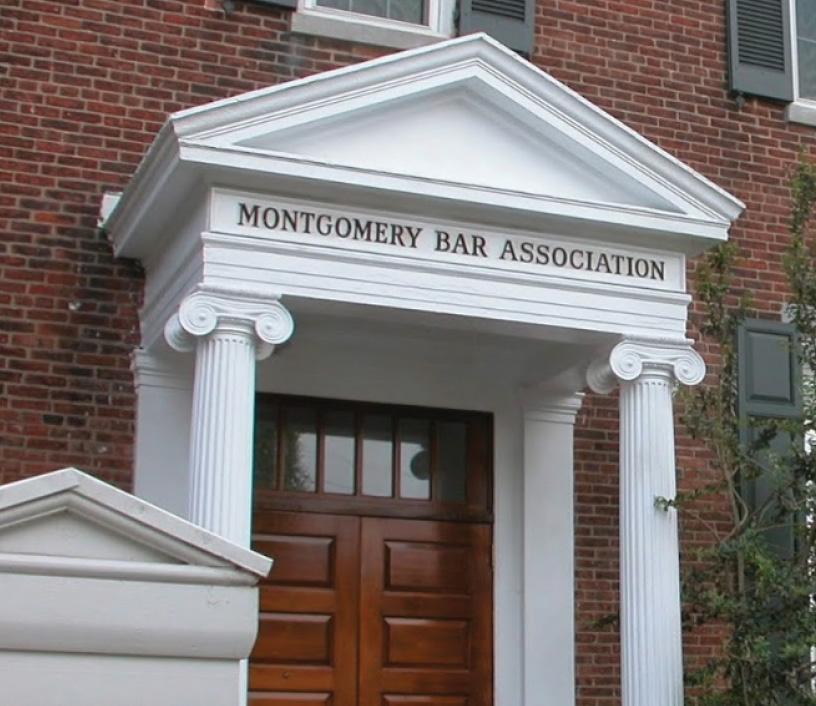
Conventional wisdom says, “Don’t put all your eggs in one basket.” MLM thinks otherwise.

Lawyers’ professional liability insurance is all we do. As a result of doing one thing, we do that one thing well.
At MLM “here today, here tomorrow” is more than just a motto and our financial strength is your best defense.
MLM insures legal practices in 15 states, including Pennesylvania. Since 1997, we have been a stable, reliable source of risk management services and professional liability insurance for the lawyers of Pennsylvania.
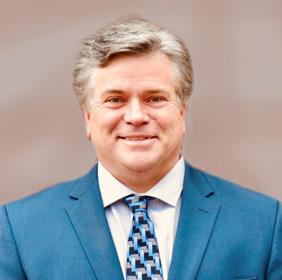
Protecting Your Practice is Our Policy.®
the Women in Law committee meetings, knowing really no one, but wanting to build a network and, candidly, to have a group of professional women with whom I could connect. Pam was very welcoming and she made me want to engage more in the MBA by simply taking the time to meet me, ask me about my practice and life and inviting me back to more meetings. And so, I did go to more meetings, and then attended the In the Loop lunches, and got more involved when I could. I then squeezed in meetings with the Probate & Tax Section, I participated in Mock Trials, and volunteered with the Liberty & Law program, among other things. At the same time, I was actively involved with the Wills for Heroes program. Through some collaborative events with the MBA I had the chance to work with many of the Young Lawyers Section and others in the MBA. That was the first time I met Justin Bayer. I could never have imagined at that time that we would serve this wonderful Association as officers.
As fate would have it, I decided to leave the small boutique firm in which I was working to join a larger, multi-faceted law firm closer to my home. When I interviewed at Hamburg, Rubin, Mullin, Maxwell & Lupin, Steve Lupin remembered that we had met at the MBA when he was President of the
Get a Quote Today!
Jody Campbell
215-827-8026
jcampbell@mlmins.com www.mlmins.com
Montgomery Bar Foundation. He had presented me with a check for the Wills for Heroes program. While I am sure it was my prior experience and endearing personality that got me that job, I do believe the tipping point was the connection we made through the MBA. As the story unfolds, it was the continual interactions and camaraderie of the people I met through the MBA that drew me in and made me want to engage more.
This Bar Association has been a wonderful source of professional development for me. More importantly, it has allowed me to meet so many attorneys I would not otherwise have met through my practice area, many with whom I have developed great friendships. My membership is what I have made it, but not without the subtle (and not so subtle) urging from others. When my family was young, I made it to the things I could. There is such a wide array of events, meetings, CLEs, and other activities. There is something for everyone. I invite all our members to create those relationships, engage in events and activities that interest you, get involved in a committee or seek a leadership position and make your membership what you want and need, but make it the best it can be. I can assure you that it has been a true source of enjoyment for me.


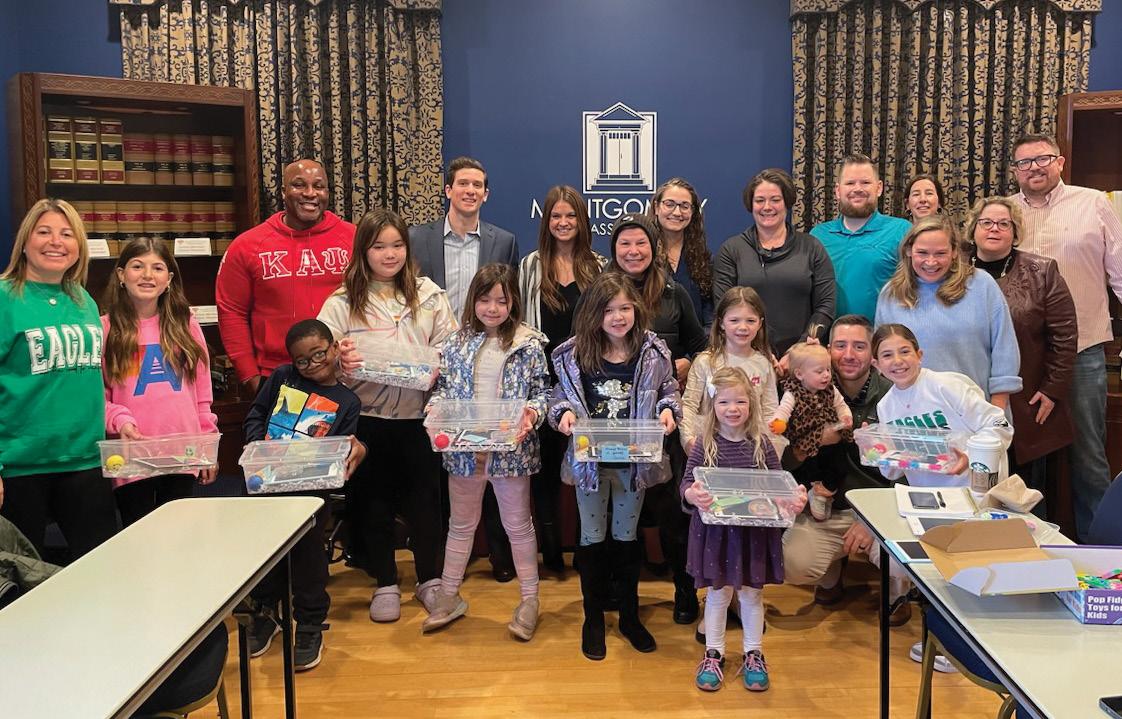


Beginning a new career is exciting, but being new at anything can be intimidating. It’s easy to feel like the kid in a teen movie who transferred schools at the beginning of senior year. But if entering the practice of law is anything like a teen movie, allow the MBA Young Lawyers Section to be the kind (and quirky) classmate that invites you to sit at their lunch table. At a time and place that can feel both completely fresh and somewhat heavy, the YLS provides a community for young (or young in their career) lawyers and boasts an impossibly broad range of resources and programs, all with the singular goal of kickstarting the careers of the MBA’s “fresh-squires.”
The Young Lawyer’s Section gathers once a month for a regular business meeting but features a number of professional development and social events throughout the year. Whether it’s the annual ski trip, MLK Day of service, the 101 CLE series, May Month of Service, or Mock Trial, there is something for lawyers of all ages, and we’d love to have you join us.
Like what you hear? Get involved! Eligible MBA members are automatically added to the YLS contact lists; keep an eye out for updates and emails about upcoming events. YLS members are also invited to join an exclusive LinkedIn group, where they can promote events, ask questions, share client referrals, and generally connect with and learn from each other. The full schedule of YLS events is always available on the MBA website under the CLE and Events tab.

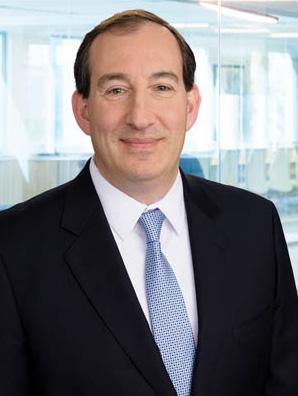
“If you can’t have a drink with opposing counsel after a trial, you are doing something wrong.” We all have war stories of opposing counsel who filed pointless motion after motion, made litigation exhausting, and, in the end, only made settlement discussions more difficult, if not impossible. Granted, some issues cannot be resolved without court involvement, and some cases need to be tried. But for many of us, we were taught early in our careers to concede nothing, always come from a position of strength, and fight every battle to the bitter end, no matter how small.
Undoubtedly still, many trial lawyers believe that the only way to get the best for your client is to bludgeon your opponent into submission with no regard for collegiality or respect; however, with the increased use of alternative dispute resolution through mediations and private arbitrations, the hope is that the trend is shifting more toward collaborative approaches to resolving cases and less animosity in the litigation process. Moreover, a constant refrain from arbitrators and mediators is that this approach works better in finding a settlement that is “mutually unsatisfactory” to both sides and, hence, the best settlement for everyone. Simply put, all-out warfare may work on random occasions for the win, but in the long term, it is less productive.
This approach, however, is nothing new; it has long been held by academics to be the most effective way to resolve problems. My personal experience revolves around an undergraduate class at Brandeis University I took in 1991;
Group Process taught by Professor Morris Schwartz (yes, the same Tuesdays with Morrie central figure in Mitch Albom’s book). But what does a sociology class about group interaction have to do with being a trial lawyer? Turns out quite a bit.
The class was for three hours every Wednesday in an unconventional classroom, a large round room with no tables or chairs but sofas and spots on the floor. Sixteen of us students and Prof. Schwartz would spend the first two hours of the class discussing something going on around campus, locally or on the world stage, and then in the last hour, Prof. Schwartz would weave in the weekly reading to explain the nuances of group interaction in problem-solving. The discussion forced us as individual students to understand how we act within groups, but also to recognize how our group interactions impacted those within that group. I see now that some of those lessons learned back then loom large on my own practice, and I would suggest, can help all of us as trial lawyers. This year, I hope to impart some of what I learned from Prof. Schwartz back then into improving our work as trial lawyers today through our programs.
An overriding theme in understanding how groups interact was that those who can self-reflect and acknowledge their limitations are not only more equipped to interact within the group, but that they garner the ability to have others seriously consider their point of view. How many times has an adversary failed to concede even the most basic of positions? And when
they do, we often discount any other proposition or legal argument as being equally as outlandish. Yet when the other side comes to the table laying out the issues and admitting negative aspects of their position, it creates an environment where resolution is more possible. While this construct directly contradicts what many of us were taught about litigation, even the most seasoned of trial lawyers need to learn that what may have worked 25 years ago in litigating cases may not work today. It is not just the ability to learn from mistakes and evolve that matters, but an openness to that process that engenders respect and consideration from others.
Prof. Schwartz would argue coming from a position of strength often started with being unafraid to discuss flaws – whether individually or within the context of solving a problem. This was none more evident than in the Trial Lawyers Section February CLE on mediations, where the panel expressed how helpful our openness to conceding the negative aspects of our cases helps in moving toward settlement – not only in dealing with opposing counsel but also in dealing honestly with our clients. Granted, there are those legal issues that cannot be worked out and those cases that need to be tried, no matter how willing counsel is to work with one another. However, rethinking how we practice as trial lawyers on both sides of the fence could breed a more suitable framework for resolving claims without drawn-out and contentious litigation.
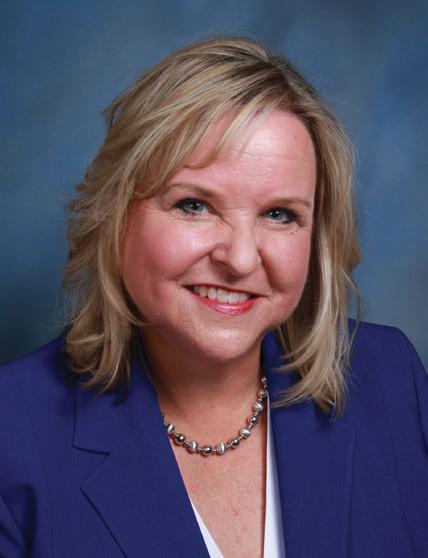
 By
By
On March 13, 2024, the Probate and Tax Section hosted Tina Lawson, Esquire, and her first deputy, Cynthia Thornton Landis, Esquire, at its regular monthly meeting. A robust showing of forty members attended the lunch presentation.
Register Lawson was sworn in as Montgomery County’s Register of Wills on January 8, 2024. A graduate of the Southern University Law Center, she has practiced law since 1992 and is the owner of the Law Offices of Tina Lawson in Fort Washington and Philadelphia, PA. Her previous experience includes working as an Assistant Solicitor in Philadelphia in the Tax Unit and serving as an Assistant District Attorney in the Philadelphia District Attorney’s Office. Ms. Lawson was also previously employed as corporate counsel for an international company before opening her own practice.
and upgrade technology. While the Registers of Wills in surrounding counties have reopened fully to the public following the pandemic, the Montgomery County Register’s Office has not. Although virtual probate proceedings are helpful to most practitioners as well as the general public, not all functions of the Register’s Office are best served virtually.
Register Lawson is also prioritizing hiring additional staff and improving the office culture. At present, employees work a hybrid schedule, but future plans include a full return to the office. Ms. Lawson’s dedicated goal is to provide excellent customer service to constituents. Upgrades to the telephone system and website are anticipated.
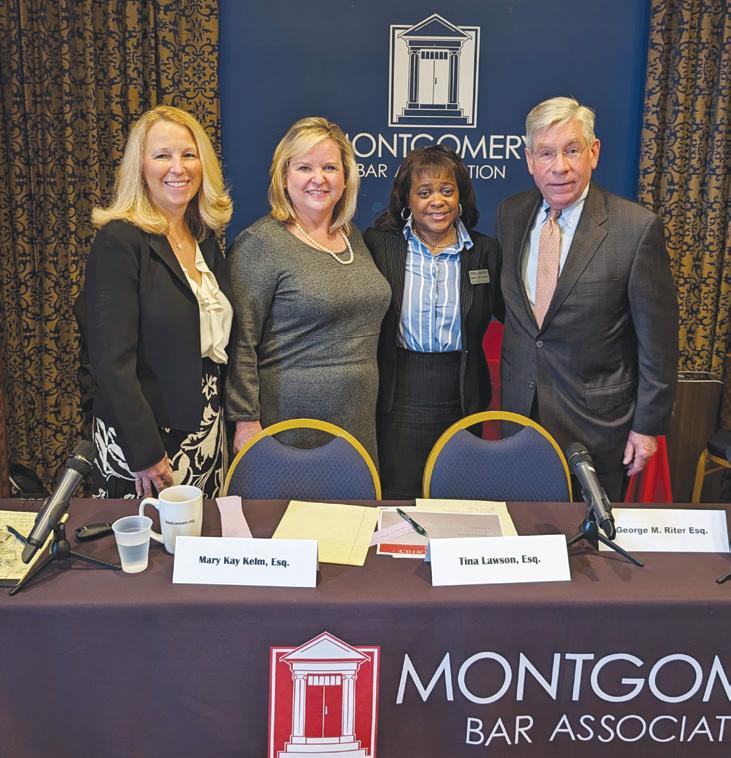
Ms. Lawson gave a thoughtful, organized presentation on the duties of the office and her agenda for the future. While noting that no transition is seamless, Ms. Lawson described her plan for resolving inherited issues and implementing best practices for the Office. Primary goals are to reopen the Register of Wills Office to the public
She looks forward to dedicated partnership with the Montgomery Bar Association, the Pennsylvania Associations of Registers of Wills, the Register’s Roundtable, Legal Aid and Senior Centers. Ms. Lawson openly shared her contact information and
encouraged anyone with questions or concerns to contact her directly. Audience members engaged in a question-andanswer portion of the meeting following Register Lawson’s dedicated comments. Implementation of an attorney hotline for the Office will be considered for the future.
The Probate Section is grateful to Register Lawson and First Deputy Thornton Landis for their time and cooperation.
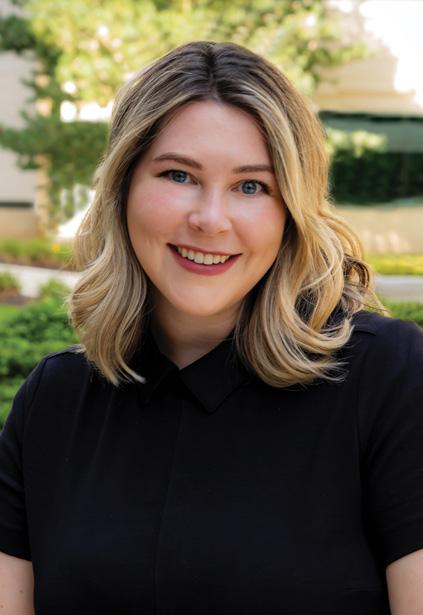

It is my experience that when sharing what I do with those outside of the bubble of family law, they seem to have a clear picture in their mind of the family law profession. A consistent response is, “oh, you represent parents who can’t get along.” Of course, for the practitioners inside this “bubble,” this is an oversimplification. Not only is the “what” of what we do ever-evolving; but also, the “who” we do it for. That is to say, who is a parent?
On December 11, 2023, an en banc panel of the Pennsylvania Superior Court weighed in on this issue in the case of Glover v. Junior, 306 A.3d 899.
Chanel Glover and Nicole Junior married in January 2021 and shortly thereafter jointly pursued in vitro fertilization (“IVF”) treatments. Specifically, Glover and Junior entered into an agreement with a cryobank for donated sperm, with Glover identified as the “Intended Parent” and Junior identified as the “co-intended Parent.” The couple subsequently entered an IVF agreement with a medical practice, identifying Glover as the “Patient” and Junior as the “Partner.” In August 2021, the couple conceived a child utilizing Glover’s eggs and the sperm which was jointly obtained from the cryobank. The child’s due date was in May 2022.
In early 2022, the parties’ marital relationship deteriorated. Ultimately, Glover filed for divorce in April 2022, prior to the child’s birth.
Shortly thereafter, Junior filed a petition in the domestic relations section seeking pre-birth establishment of parentage. After a hearing, the trial court granted Junior’s petition and confirmed Junior as the legal parent of the child based on contract principles. Glover appealed.
The question presented to the Superior Court was: can individuals
enter into enforceable agreements to determine parentage and parental rights? As this involves a legal question, the Superior Court’s review was de novo.
The Superior Court analyzed this question within the context of the following framework as it relates to parentage:
While parentage is typically established biologically or through formal adoption, in cases involved ART, ‘contracts regarding the parental status of the biological contributors must be honored in order to prohibit restricting a person’s reproductive options.’
citing C.G. v. J.H., 193 A.3d 891(Pa. 2018). Turning to the contracts themselves, the Superior Court noted that the IVF agreement between both parties and the medical facility supported Junior’s assertion of parentage. Specifically, Junior was a required signatory of the contract, which set forth obligations, constraints and liabilities specifically for Junior, as a party to the contract. The Court further found that while not a signatory to the agreement with the cryobank, Junior was identified as a “cointended parent” which evidenced to the Court that the couple expressly intended Junior would be bound by the terms of said agreement. In addition to these ART agreements, the parties also jointly hired a doula as well as legal counsel for Junior’s step-parent adoption. Ultimately, the Superior Court concluded, “the various agreements bear out the reality that Junior would be the child’s second parent.”

In addition to the written agreements, the Superior Court considered the conduct of the parties and concluded that an oral contract existed between them. Most notably, in reaching this conclusion, the Superior Court determined that Junior’s equal share of the costs, including the IVF, doula and legal
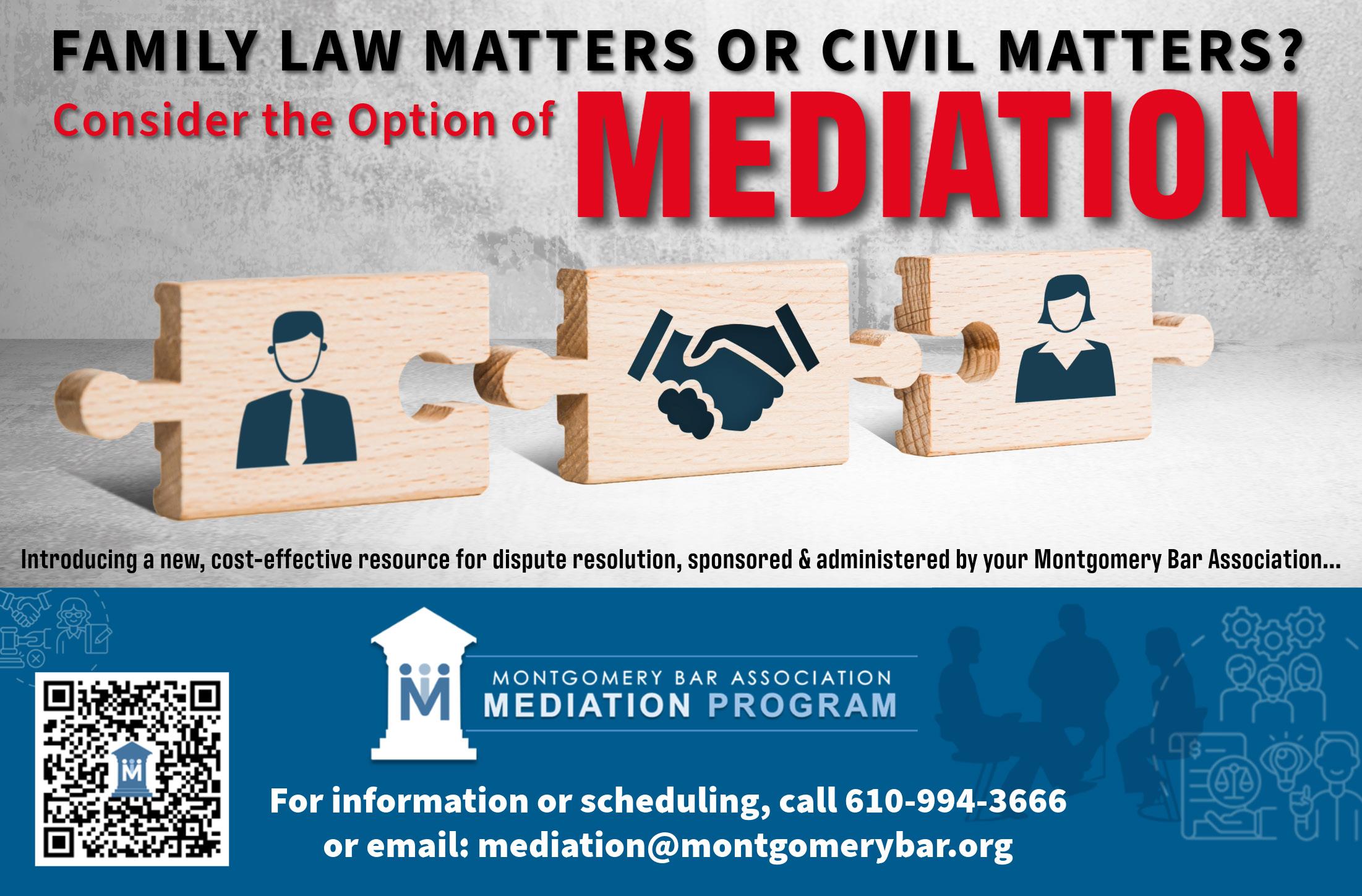
fees for second parent adoption, as well as her share in the emotions of an ART journey, was sufficient consideration such that an enforceable oral contract existed between the parties.
Taking it a step further, the Superior Court concluded that in the absence of a contract, the Superior Court would affirm the trial court’s determination of Junior’s parentage based upon the principle of “intent-based parentage.” The Supreme Court mentioned intent-based parentage in its C.G. decision, although concluding that the principle would not have conferred parentage to the non-biological party in C.G. In his concurring opinion to C.G., Justice Wecht concluded, “I think that today’s case is a missed opportunity for this Court to address the role of intent in analyzing parental standing in ART cases.”
The Superior Court determined that this case presents that opportunity. Applying its interpretation of intent-based parentage, the Superior Court concluded that the instant case meets the standard. The Superior Court specifically highlighted Junior’s testimony regarding the selection of the sperm donor – that the donor was chosen based on likeness to Junior so the child would look as much like both parties as possible. Ultimately, the Superior Court concluded:
This appeal is the paradigm of intent-based parentage in cases involving ART, where the couple not only evidenced their mutual intent to conceive and raise the child, but also they
participated jointly in the process of creating new life.
On March 5, 2024, the Pennsylvania Supreme Court granted Glover’s Petition for Allowance of Appeal, specifying that the issues to be considered concern intent-based parentage. We await the High Court’s analysis and determination on the issue of intent-based parentage.
Esteemed Family Law Section member Helen Casale is counsel in the Glover case, having submitted an amicus brief. In speaking with Helen, she impressed the importance of this case, as the Supreme Court’s determination is a huge step in defining parental rights in Pennsylvania. While ART is not necessarily new, the legislature has yet to provide guidance and litigants must therefore obtain guidance from the Courts. In Helen’s words, “solidifying the concept of intent-based parentage would be huge!”
Helen also reminded me that while I may refer to the family law practice as a bubble, the reality is that this area of law – the judicial precedence we cite everyday – is shaped by real people living out their deeply personal and intimate stories in a courtroom. As lawyers eagerly await the Supreme Court’s determination of this exciting legal issue, Nicole Junior continues to wait to meet her child.

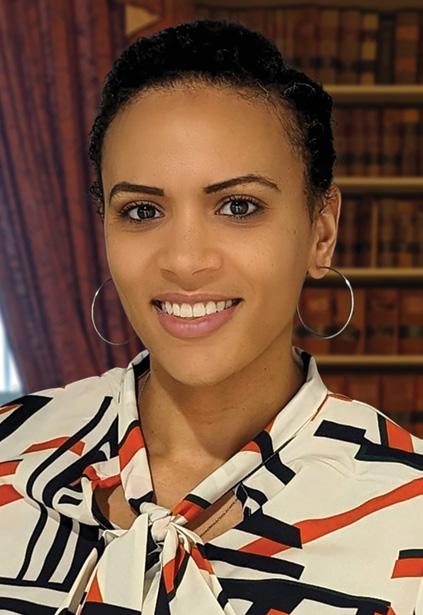 By Ashley A. Garland, Esq.
By Ashley A. Garland, Esq.
We’ve all heard of March Madness, whether you’re an avid basketball fan or not. Brackets are completed, parties are thrown, bragging rights are won. March Madness is the pinnacle of the college basketball season for both men’s and women’s basketball – the top sixty-four Division I basketball teams compete in a win or go home format, culminating in crowning the champion of the season. But, somewhat unsurprisingly, the Men’s College Tournament has always consumed the March Madness spotlight –until now.
The first Men’s March Madness Tournament was played in 1939 with just eight teams and did not expand to the current sixty-four team version until 1985. In contrast, the Women’s NCAA Tournament started in 1982, but was not allowed to use the March Madness trademark until 2022. Between 1982 and 2016, women’s basketball received more hate and criticism than love and appreciation. Critics of women’s basketball have centered their disdain on a seeming lack of strength, speed, and excitement. These comparisons dismissed the talent and athleticism that has long been demonstrated in the women’s game.
Finally, over the last two years, women’s basketball has seen a drastic increase in attention, support, and appeal. The 2024 Women’s Final Four (the portion of the tournament that hosts the semifinals and championship games) was the most-viewed on record, averaging 13.8 million viewers. This is an increase of 114% from the 2023 Final Four and 299% higher than 2022. More impressively, the 2024 Women’s Final Four had more viewers than the 2024 Men’s Final Four – the first time this has ever happened. So, what changed?
The drastic increase in viewership can likely be attributed to at least two things: support from well-known and well-respected male
athletes, and acceptance that women’s basketball is entertaining, even if it looks a bit different than the men’s games.
A number of NBA players have taken to social media to express their excitement about the women’s game in the past few years, such as Lebron James, Steph Curry, and Shaquille O’Neal, just to name a few. Curry and O’Neal even signed female collegiate athletes to their brands. The exposure these big-name NBA stars bring to women’s basketball encourages critics of the women’s game to give it a chance. Second, the critics of the women’s game often compare it to the men’s game, expecting the game to only be played one way – the way men play. This flawed black-and-white thinking convinces critics that, because women don’t play exactly like men, the women’s game is boring or unwatchable. But true basketball fans still find excitement in the prolific passing, sharp shooting, and dedicated defense in the women’s game, even if it’s a bit different than the men’s game.
The oft-discussed men’s vs. women’s game is a microcosm of society at large: men do things better – they’re stronger, faster, and more entertaining. This plays out in many of life’s domains. Women still get paid less than men on average, receive fewer promotions, and are often considered to be weaker candidates for high leadership positions. We can all benefit, though, by taking a page from the growth of women’s basketball over the past few years to promote more fairness and opportunities for non-male individuals in different spaces: use our voices, reputations, and platforms to show support for women and other individuals typically omitted from important conversations and be open-minded to the idea that someone’s work can look different than what is typical and be just as great.
Women’s basketball players never asked for special treatment or exceptions – only the opportunity to be appreciated for the talents they possess. When we stay open-minded and are willing to support those who are often not allowed to sit at the proverbial table, we open the doors for more diversity, equity and inclusion.
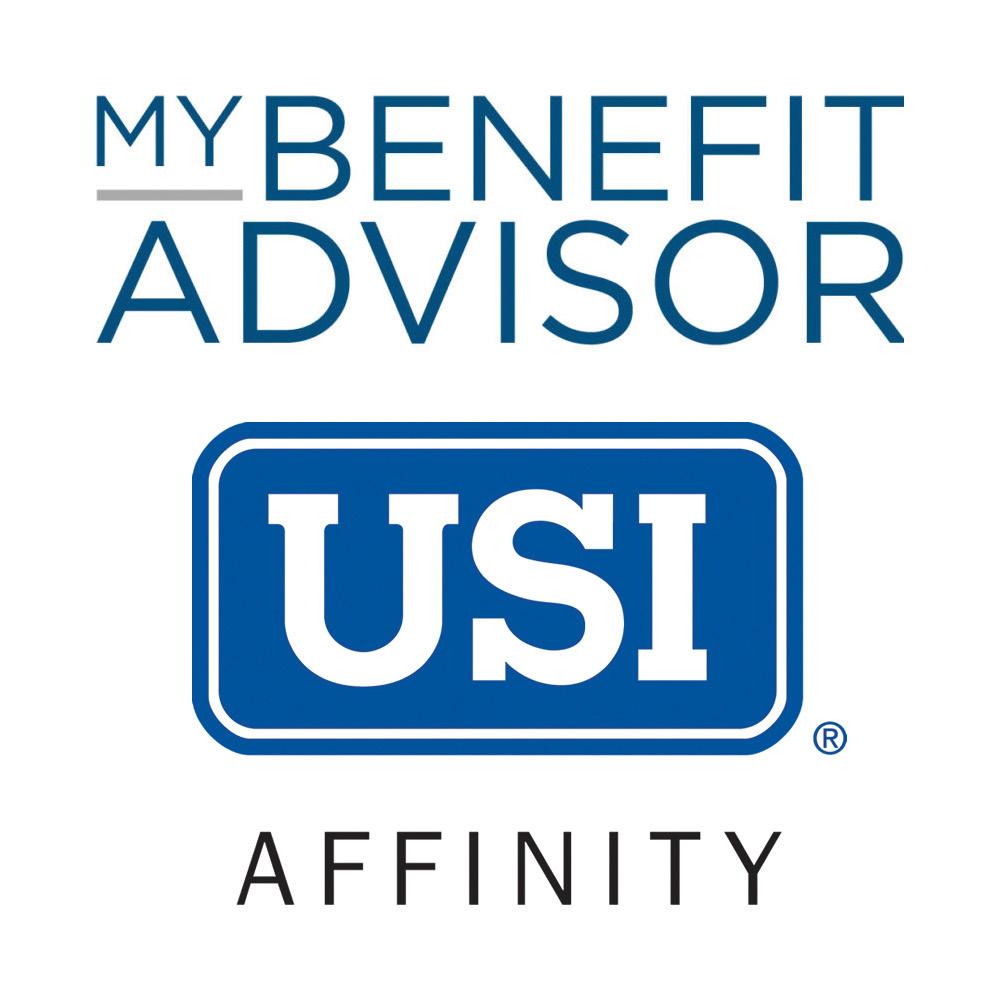
In today’s work environment, the line between personal and professional life is becoming increasingly blurred. As a result, employees are seeking more comprehensive benefits that accommodate their family responsibilities and foster a healthy worklife balance. More employers today have begun to understand that an expansion of family-friendly benefits above and beyond federal law requirements is a key facet to protecting the physical and mental health of their workers.
Family-friendly benefits are essential in attracting and retaining top talent, as they demonstrate an organization’s commitment to supporting its employees beyond the workplace. Employers can utilize a few key strategies in order to effectively include familyfriendly benefits in their employee benefit package, which can help lead to positive impacts on employee well-being, job satisfaction and overall organizational success.
• Flexible Work Arrangements
One of the most fundamental principles of family-friendly benefits is that of flexible work arrangements. This can allow employees to better balance their professional and family obligations, and include options like telecommuting, flextime, compressed workweeks or job sharing. Offering such flexibility not only enhances employee happiness but also improves productivity and job satisfaction. By focusing on results rather than strict office hours, employers can demonstrate a trust of their employees
to manage their time and deliver the required performance, leading to a more motivated and engaged workforce.
• Paid Parental Leave
Paid Parental Leave plays an important role in promoting family-friendly policies. Providing adequate time off and compensation for new mothers and fathers allows employees to bond with their children during those formative early months. Beyond the emotional benefits, paid parental leave also contributes to increased employee loyalty, reduced turnover and a positive employer brand that attracts top talent seeking a supportive work environment.
• On-Site or Subsidized Childcare
Supporting working parents by offering on-site or subsidized childcare is a game-changer for many employees. By alleviating the stress of finding reliable childcare, employers can demonstrate their commitment to the well-being and needs of their employees. Additionally, on-site childcare can improve attendance, reduce lateness, and boost overall productivity. When on-site childcare may not be feasible, partnering with nearby childcare centers and offering financial assistance can still provide valuable support to working parents.
• Dependent Care Flexible Spending Accounts (FSAs)
Dependent Care FSAs allow employees to set aside pre-tax dollars to cover eligible childcare expenses, such as daycare, after-school programs, or summer camps. By offering this benefit, employers help
reduce the financial burden of childcare costs for employees, making it easier for them to manage work and family responsibilities without sacrificing their financial stability.
• Elder Care Support
Family-friendly benefits should not be limited to childcare; organizations should also consider elder care support for employees with aging parents or family members in need of assistance. Offering resources, counseling and referrals for elder care services can provide much needed relief to employees navigating these complex family situations.
• Work-Life Balance Programs and Resources
Implementing work-life balance programs and resources can help employees better manage their personal and professional commitments. This may include wellness programs, stress management workshops, counseling services or flexible time-off policies. Employers can encourage a healthy work-life balance by promoting self-care and providing avenues for employees to recharge and rejuvenate, ultimately leading to increased productivity and reduced burnout.
The Montgomery Bar Association offers its members access to My Benefit Advisor as a solution for employee benefits, including voluntary offerings. For more information about My Benefit Advisor, visit our website at montba. mybenefitadvisor.com or contact Ray Keough at (610) 684-6932.

 By Tim Knowles, Esq., Co-Chair, Pro Bono, Access to Justice, and Community Service Committee
By Tim Knowles, Esq., Co-Chair, Pro Bono, Access to Justice, and Community Service Committee
Last year the Pro Bono, Access to Justice, and Community Service Committee created the Keystone Attorney Award. This award is given to any attorney who performs 50 or more hours of pro bono work or community service during the year. Twenty attorneys won that award in 2023.
MBA President Lisa Shearman has challenged us to double that number in 2024.
We are already well on our way to meeting that number. On January 15, 2024, members of the committee participated in the Young Lawyers Section’s MLK Day event. We created sensory boxes for students at A Step Up Academy, a K-12 private, non-profit school for students with autism. On February 22, 2024, we co-sponsored a CLE with the Criminal Defense Committee on Pennsylvania’s newly expanded Clean Slate law. This law provides valuable options for Pennsylvania residents with criminal records to get a fresh start.
We have exciting things in the works. The MBA is now an accredited provider of pro bono CLE credits. This means that every five hours of pro bono service performed through the MBA will count as one hour of CLE credit. Up to three credits per year can be earned in this manner.
Further, the MBA has unveiled the Pro Bono & Volunteer Opportunities webpage. This webpage allows users to post pro bono & volunteer opportunities and track their hours for the Keystone Attorney Award or the President’s Volunteer Service Award.
Our committee is sponsoring a CLE on August 21st on our Lawyering Together partnership with Villanova University School of Law and Legal Aid of Southeastern PA. This program will partner attorneys with law students to perform pro bono work on simple estate planning, divorce, and expungement cases. Keep your eyes open for more on that program in the months to come. It will be in-person at the bar building. Come join us! The food is spectacular and the people are really nice. Contact committee co-chairs Kate Palladino (kpalladino@lasp.org) or Tim Knowles (tknowles@ wmpalaw.com) if you’d like to get involved.
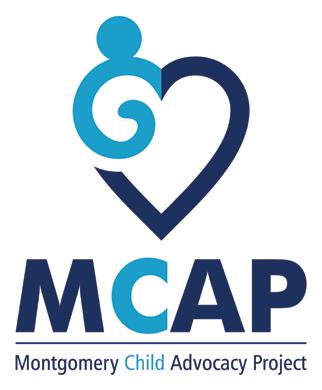

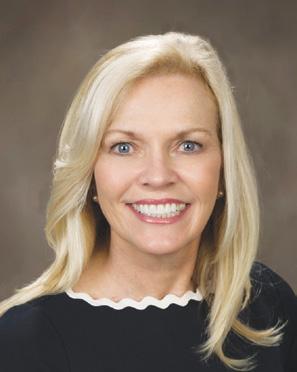
ilestones offer the chance for reflection and celebration. 2024 marks MCAP’s 20th anniversary as a nonprofit organization! MCAP’s trail-blazing founders, the Honorable Wendy Demchick-Alloy, the Honorable Risa Vetri Ferman, and Marc R. Steinberg, Esq., began MCAP to address the unique needs of child victims of abuse, neglect, and trafficking in the legal and social service arenas. With only a handful of interested and willing pro bono lawyers representing children in 2004, MCAP has grown into a vital organization helping children overcome the trauma of violence, neglect, abandonment, sexual abuse, and death. In the past 20 years, the world has changed dramatically. Children have experienced physical, emotional, and sexual abuse, food insecurity, drug, alcohol, substance, and pornography addiction, homelessness, abandonment, and other horrendous atrocities. With the advancements of technology, children have been exposed to unforeseen dangers of internet predators, targets for crimes, and witnesses to countless brutally cruel acts. Child abuse is non-discriminating in that it affects all neighborhoods, religions, genders, educational levels, ethnicities, and cultures. MCAP has helped by advocating and caring for these children in these and many other horrific situations.
Along with helping children through these horrific experiences, MCAP has grown into a vital organization. Over the past 20 years, over 700 MCAP pro bono advocates tirelessly represented over 10,000 children in and out of the courtrooms. We celebrate the 10,000 plus children who had a voice, a friend, and advocate in the midst of the violence, hardship, and turmoil. Recognizing that there is not a typical case or typical mistreated child, MCAP has helped countless traumatized children who suffered from harm and maltreatment. Much more than a number, each child represents specific needs, desires, dreams, and hopes; MCAP stood with each vulnerable child throughout the journey.

As a diligent activist for change, MCAP helped reform laws to give children placed outside of their homes access to services and shape case law to address the needs and welfare of children. Importantly, MCAP’s concurrent mission is to prevent child abuse through education and awareness. In 20 years, MCAP has hosted and participated in over 1,000 educational seminars to raise awareness about abuse and resources available to children and their families.
MCAP celebrates its 20th Anniversary and our pro bono lawyers who help vulnerable children and offer them opportunities to heal by trusting an adult who will protect them. Today, MCAP has 60 active volunteer lawyers who share their expertise, time, and talents to a child in need. Throughout this year, we will host many events to thank our pro bono lawyers, MCAP staff, MCAP donors, MCAP Board of Directors, our
continued on next page >
Continued from page 15

stakeholders, and all of you who support us every day. We invite you all to join MCAP at our many “friend-raisers” where we will be raising awareness for at-risk children and appreciating all who help vulnerable children.
• MCAP at Elmwood Zoo –Wednesday, June 5, 2024, 5:30pm-7:30pm
• MCAP 20th Anniversary MCAP GALA –Friday, September 27, 2024, at Bluestone Country Club
• MCAP Appreciation Lunch –October 2024
• MCAP Holiday Celebration –December 2024
Take a look back and see how we have grown since 2004 at www.mcapkids.org.
Find out about all of the exciting events by visiting our website at www.mcapkids.org or calling our office at 610-2791219.
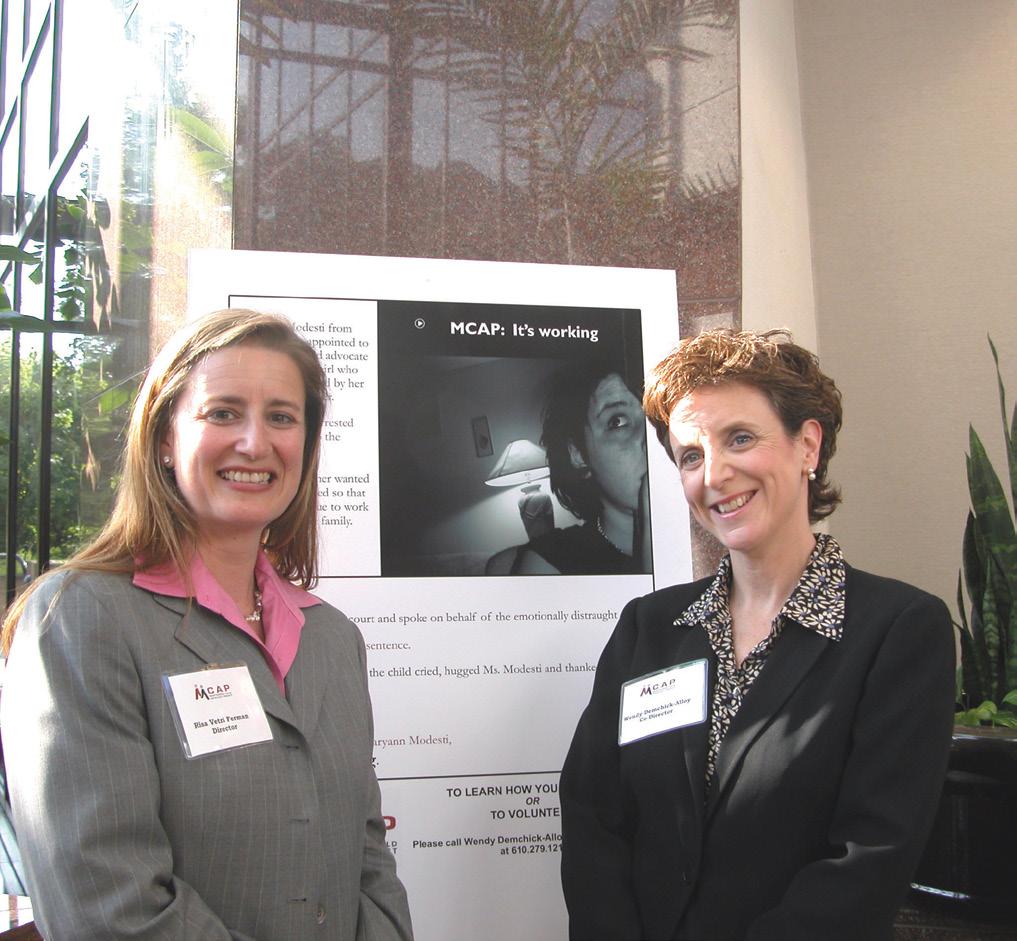




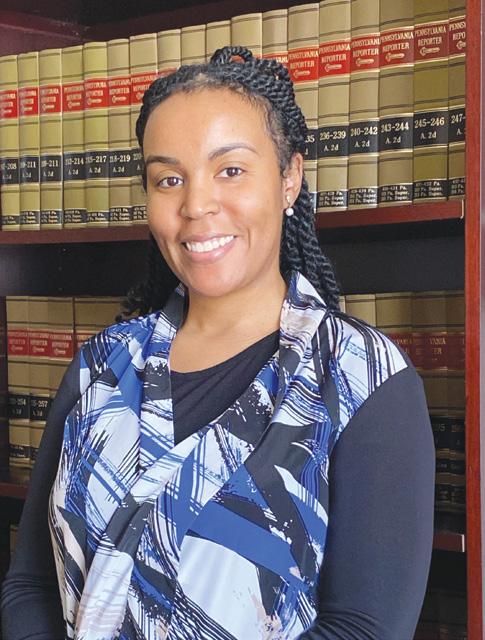
Melina Dixon, Legal Aid of Southeastern PA Staff Attorney, has been named the new Montgomery County Pro Bono Coordinator. She takes on the pro bono coordinator role in place of Kathryn Palladino, Norristown Managing Attorney.
Melina joined LASP Dec. 1, 2021 as Staff Attorney based in Norristown. She focuses her practice on elder law, senior wills, healthcare directives and powers of attorney.
“Having the opportunity to work with attorneys and the private bar for various events helps LASP expand our reach and help more clients,” she said. She looks forward to exchanging information about pro bono opportunities and collaborating with the Montgomery Bar Association. “Pro bono attorneys expand our footprint and bring important skills to directly help people in the community who cannot afford an attorney.”
She can be reached at 484-275-0463 or mdixon@lasp.org.


 By Jacqueline M. Reynolds, Esq., Montgomery Bar Foundation President
By Jacqueline M. Reynolds, Esq., Montgomery Bar Foundation President
I“Those who are happiest are those who do the most for others.”
~ Booker T. Washington


n the last issue of Sidebar titled The Giving issue, outgoing Montgomery Bar Foundation President Kate Harper, Esquire, addressed the question “What Does the Bar Foundation Do?” It was a great question and an equally great answer. The Montgomery Bar Foundation provides the citizens of Montgomery County with access to justice. It does so through Montgomery County organizations such as Victim Services Center of Montgomery County, Laurel House, ACLAMO, Women’s Center of Montgomery County, Legal Aid of Southeastern PA MCAP, and many others who provide access to justice. Through the Foundation’s Bar Fellows Program and fundraising events, such as Legal Aid Golf Classic, money is raised and given to these worthy organizations. These organizations deliver legal services to the needs of individuals seeking justice. Individuals whose access is hampered by limited funds and understanding, as well as language barriers and more.
They say charity starts at home. Well, our home is Montgomery County and even closer to that, our home is the Montgomery County Courthouse. As attorneys, more than anyone else, we know about the judicial process, its glory, rules, regulations, frustrations and stress. We know this because we are attorneys who work every day within the Court system. We also know the present reality of the difficulty in hiring and maintaining staff and attorneys, the rising costs of just about everything, and the toll of stress on individuals who are making do with less. Now, imagine all of these obstacles as a non-profit organization helping individuals with limited means obtain access to justice. The financial needs of Victim Services Center of Montgomery County, Laurel House, ACLAMO, Women’s Center of Montgomery County, Legal Aid of Southeastern PA and MCAP for Montgomery Bar Foundation grants have increased with the demands for their services.
Kane, Pugh, Knoell, Troy & Kramer, LLP is pleased to announce the promotion of Jessica M. Keough and Keith V. Bauerle to the position of Partner with the firm.
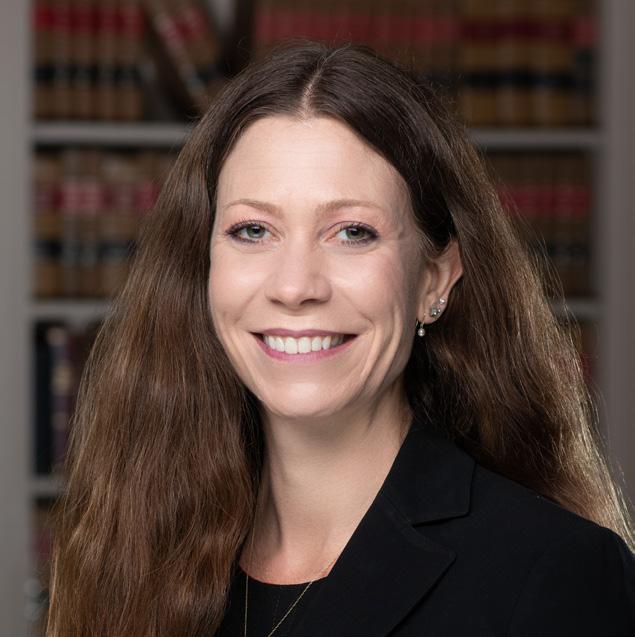
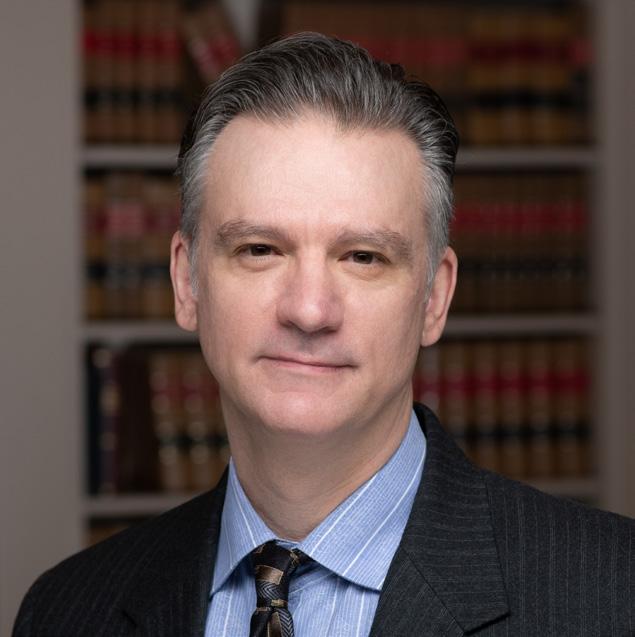
Blue Bell, PA | Philadelphia, PA | Mt. Laurel, NJ 610-275-2000 | kanepugh.com
In recent years, the Montgomery Bar Association members have stepped up to meet the increased demands of the non-profit organizations who rely on the Foundation’s grants. In 2022, James J. Heffernen passed away and as part of his charitable trust left $72,500.00 to the Montgomery Bar Foundation. In June of 2023, the firm of Wisler Pearlstine, LLP donated $10,000 to the Foundation. In December of 2023 Cary L. Flitter, Esquire, of the law firm Flitter Milz, and a former Montgomery Bar Foundation Trustee, donated $10,000 to the Foundation. Cary did not stop with a generous donation but continued the goodwill by suggesting to Bruce L. Baldwin, Esquire, and his firm Wolf Baldwin, that donating to the Foundation was a worthy endeavor. In 2023, Bruce and his firm donated a portion of their fees from a personal injury case to the Foundation in lieu of a referral fee. And the generosity ball has not stopped rolling. In 2024, Robert F. Morris, Esquire, of Morris Wilson Knepp Jacquette and Past President of the Montgomery Bar Association, has graciously donated a week at his gorgeous Spain vacation home to be auctioned off with the proceeds going to the Foundation. Bob’s generosity sparked another donation to the Foundation; Steve Tool donated a day of sailing on his boat, with him at the helm, in Annapolis, MD to be auctioned off on behalf of the Foundation. The generosity of Wisler Pearlstine, LLP, Cary L. Flitter, Esquire, Bruce L. Baldwin, Esquire, Wolf Baldwin, Robert F. Morris, Esquire, and Steve Tool has resulted in more Montgomery County citizens
having access to justice through the Foundation’s grants.
The Montgomery Bar Foundation challenges the members of the Montgomery Bar Association to keep the generosity momentum going by helping to raise $70,000 in 2024. Help the Foundation meet the increasing demand for help in accessing justice in Montgomery County by increasing the grant fund to allow it to increase the amount of its grants.
We are fortunate to be members of the best Bar Association in Pennsylvania. Let us make its charitable arm, the Montgomery Bar Foundation, the best Bar Foundation in Pennsylvania!


Make a Donation to the MBF

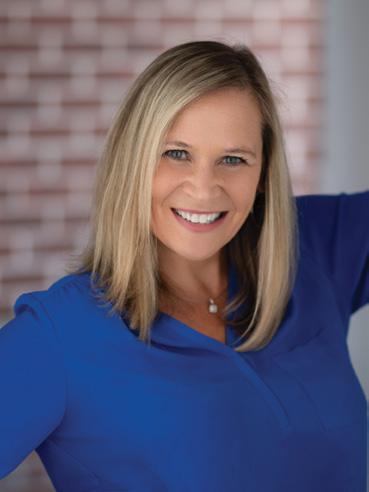
It’s one thing to be part of an organization. It’s another thing to be part of the community.
(Jason Kelce’s Brother – Go Birds!)
It is hard to deny the innumerable professional benefits provided by the MBA. Referral sources, educational offerings, meeting locations, networking opportunities, discounts, speaking engagements, and even community service connections are among the many resources your MBA membership offers to help you succeed in the legal arena. As valuable as these benefits are, however, they are rarely the main reason so many consider the MBA so integral to their success and – more importantly –happiness in this often-challenging profession. This particular benefit is increasingly more elusive in our disconnected world: Community. Building and nurturing community is what the MBA does best, and two programs offered by the Association are particularly focused on providing this benefit to young lawyers.
The YLS Development Program began in 2023, when then-President Justin Bayer wanted to ensure the newest MBA members felt welcomed and comfortable, not only as they worked to find their niches in this bustling Association, but to the practice of law itself. These young lawyers (some still waiting for their bar exam results!) met each month, just prior to the general YLS meetings, and together explored topics such as work-life balance, the imposter syndrome, and strengthbased leadership. Above all, they were given a safe space to ask questions, seek support, and share concerns with new friends experiencing the same challenges and victories unique to young
lawyers. Facilitated by Nancy Walsh, the program also offered one-on-one mentorship with carefully selected members of the MBA, dynamic speakers, and exclusive invitations to various MBA events. Member of last year’s Development Group (and current Leadership Academy member) Tony Sebia shares:
My journey into the practice of law was somewhat unorthodox. By the time I began my career as a young lawyer, I was already a professional but in a wholly unrelated field. I am immensely appreciative of the MBA community and its ability to provide me with resources uniquely suited to my needs, such as connection to mentors and professional opportunities, or simply the opportunity to commiserate with other young lawyers. The MBA truly allowed me to kickstart my new career.
The Development Group program continues with enthusiasm and will meet three times this year rather than monthly. The next meeting for 2024 will be September 18th from 11:00 AM to 12:00 PM. If you are a new (or newish) young lawyer looking for your community, come join is!
If you can’t make these meetings, but wish to be involved moving forward, contact Nancy Walsh (nancy@tbdnowllc.com).
The MBA Leadership Academy offers an even deeper dive into community formation. Launched in 2015, Leadership Academy is a year-long program designed to foster leadership within the Association by providing participants training in a broad range of leadership skills, including effective communication, relationship building, and team dynamics. The group meets approximately 10-12 times throughout the year and produces a final project which provides hands-on application of their leadership skills. Participants are also matched with Academy Alumni mentors and judicial mentors, expanding their network even further. Sebia notes, “I consider the Leadership
Academy to be an opportunity to contribute to the community, to learn from my colleagues and to help provide (and enhance) the same benefits that I found so invaluable.”
Although the skills and opportunities provided by the Academy are, indeed, invaluable, the unquestionably most important benefit is, again, the community its members develop as they share that year together. With workshops focused on self-awareness, storytelling, and individual strengths, participants come to know each other in a unique way, and friendships are quickly formed. As the group immerses itself in its signature project, members become invested in its outcome and in each other. Past Academy participant Chelsea Deardon shares:
With my participation in Leadership Academy, I learned invaluable skills from Nancy Walsh. From self-reflection, learning about my strengths and weaknesses and how to build on these strengths and overcome my weaknesses, to how to assert myself in a room filled with people whom I do not know, which can be intimidating. I also built long-lasting friendships with a number of individuals, not just in my leadership class, but in others as well, some of which have become some of my most cherished relationships. I cannot possibly overstate the benefits and life skills that I gained from Nancy and the Leadership Academy.
This year’s Leadership Academy is already hard at work on a project focused on gaps in legal resources in Montgomery County; stay tuned for news of the impact this dynamic team will make!
Leadership Academy is offered every two years and will be recruiting its next class in Fall 2025 for a January 2026 launch. Contact Nancy Walsh (nancy@tbdnowllc.com) at any time for more information.
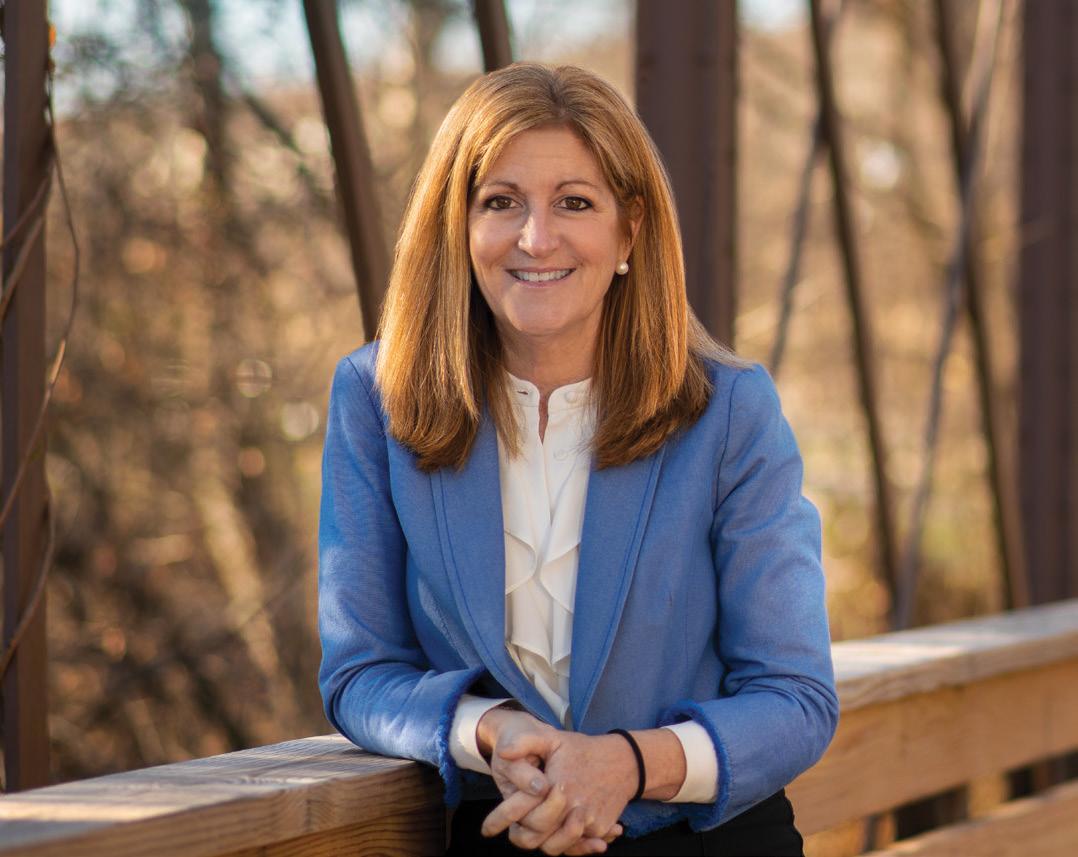
Schuylkill River Greenways partnered with Tompkins because of our shared commitment to traditional values and economic innovation. | tompkinsbank.com
your bank of choice
For expert trainings and executive coaching for you or your firm, contact Nancy at tbdNOW (TBD NOW (tbdnowllc.com); nancy@tbdnowllc.com. MBA members ALWAYS get preferred treatment!




 OBy Frank A. Mazzeo, Esq., Co-Chair, Membership/Development Committee
OBy Frank A. Mazzeo, Esq., Co-Chair, Membership/Development Committee
n Wednesday, April 10, 2024, the Montgomery Bar Association welcomed new members at its traditional New Member Breakfast at the Bar Association building. For the first time in recent memory, the event included a CLE, which proved to be a big hit as over 45 new and existing members attended and enjoyed a delicious breakfast.
The CLE, entitled “How To Know When You Are In Over Your Head,” included an all-star panel of the Honorable President Judge Carolyn T. Carluccio, MBA President Lisa A. Shearman and Former MBA President Paul C. Troy. Moderator L. Anthony Sebia ably guided the panel on a wide variety of topics especially pertinent to young lawyers.
Attendees learned about factors to consider in deciding whether an attorney is competent to take on a new matter. The audience was reminded of the benefits of getting help from other more-experienced attorneys, both within and
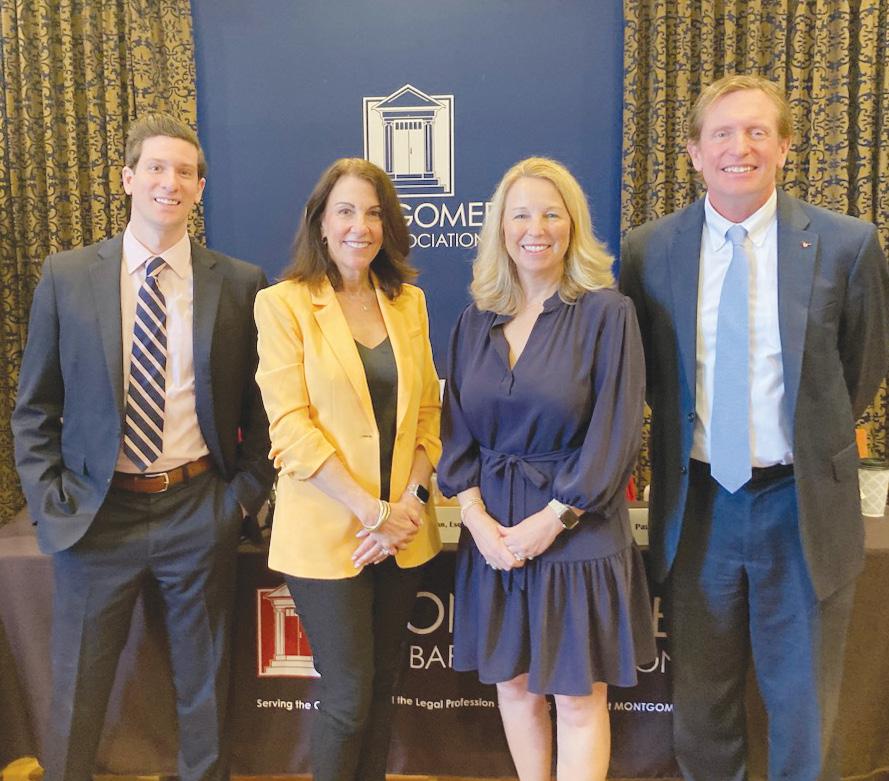
outside a firm. The presentation also included a discussion on keeping client information confidential. Finally, the panel discussed when it might be time to terminate a representation of a client, how to do it, and subsequent obligations. The presentation included plenty of questions from the audience, and several of the more-experienced attorneys in attendance also contributed useful points.
The event was hosted by the Young Lawyers Section and the Membership/Development Committee.
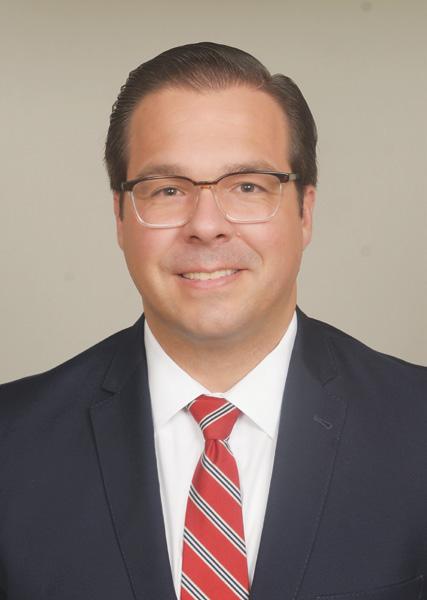
 By Justin A. Bayer, Esq.
By Justin A. Bayer, Esq.
The Montgomery Bar Association (MBA) Lifetime Achievement Award, sponsored by the Pugh Lawyers, is a prestigious honor reserved for a member of the MBA whose distinguished career, professionalism, integrity, and service embody the highest ideals of the legal community. This year’s recipient of the 2024 MBA Lifetime Achievement Award, the Honorable Mason Avirigian, Sr., is a truly exceptional individual who perfectly embodies the spirit of this award.
When someone has been a leader of our association for well over sixty years and has accomplished as much in their career as Mason, choosing the highlights is a challenge. Professionally, Mason served as a Special Assistant Attorney General of Pennsylvania from 1962 through 1968. In private practice at Wisler Pearlstine, he served as a Solicitor for School Districts, Authorities, Boroughs, and Townships. He was a trial lawyer trying both jury and non-jury civil trials from 1960 through 1976. Then, from 1977 through 1982, he served as a Judge on our Court of Common Pleas in Montgomery County. More recently, Mason has been one of the Delaware Valley’s most sought-after arbitrators and mediators. Our members can attest that Mason has been instrumental in helping settle dozens of cases over the years, and his reputation is very well deserved.
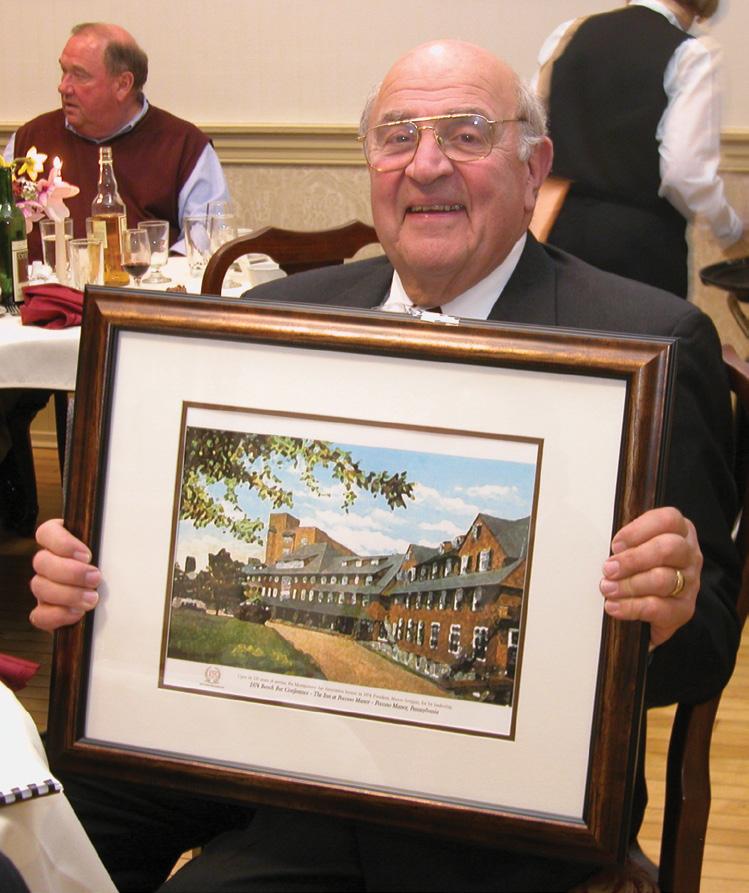
For the organized bar, Mason’s service is nothing short of incredible. Mason served for nearly thirty years in the Pennsylvania Bar Association’s (PBA) House of Delegates, he served on the PBA’s Board of Governors, and he served as Chair of the Board of Trustees of the PA Bar Insurance Fund. In the Montgomery Bar Association, he served in every way imaginable – from being a director on the board, to educating his colleagues as CLE provider, as an officer, and, of course, as a President of our fine association. This brings me to what is special about this year— Mason served as President of the MBA in 1974. This year, 2024, marks the 50th anniversary of Mason’s leadership of the MBA!
Despite the changing circumstances of the past few years, Mason’s unwavering support and involvement in the MBA have remained steadfast. His commitment spans an impressive sixty years, a testament to his dedication and loyalty. He is the epitome of a Montgomery County lawyer, and his high standards have set a benchmark for all of us. Amy DeShong, his long-time law partner, accepted the award on behalf of Mason at the Annual Business Luncheon Meeting in January 2024.

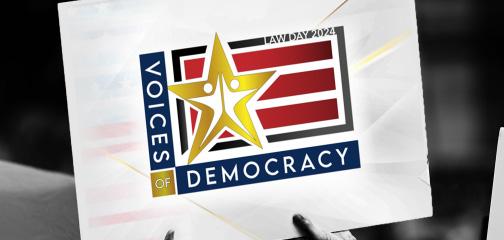
On Friday, April 26, 2024, the Montgomery Bar Association (MBA) convened at the Montgomery County Courthouse, Courtroom A, for its annual Law Day celebration. This significant event brought together legal professionals, esteemed judges, aspiring lawyers, and community members to commemorate the principles of justice and the rule of law.
The proceedings commenced with introductions by the Honorable Carolyn T. Carluccio, President Judge of the Montgomery County Court of Common Pleas. Following President Judge Carluccio’s remarks, Michael Furey, longtime chair of the American Citizenship & the Law Committee, extended a warm welcome and emphasized the 2024 Law Day theme “Voices of Democracy.”
MBA President Lisa Shearman then took the podium to deliver her opening remarks, expressing the MBA’s commitment to the annual tradition of Law Day. As a symbol of the continuity of the legal profession, Jason Edwards, Chair of the MBA membership committee, led an admission ceremony for the newest members of the MBA. These individuals were sworn in before the Court of Common Pleas, marking the beginning of their journey as members of the bar.
The highlight of the event was the Law Day Address delivered by the newest judge of the Montgomery County Court of Common Pleas, the Honorable Daniel G. Ronca. Judge Ronca’s insightful speech
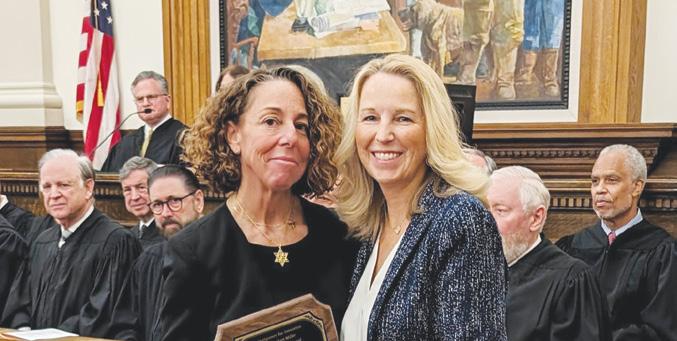
delved into the importance of American democracy and the vigilance required to maintain a healthy democratic republic.
MBA President Lisa Shearman then had the honor of presenting the Law Day Awards, recognizing individuals for their outstanding contributions to the legal profession and the community. The awards ceremony underscored excellence in public service.
The Henry Stuckert Miller Community Service Award was given to Hindi S. Kranzel, a long-time Montgomery County Assistant Public Defender. Ms. Kranzel is the embodiment of a lawyer who demonstrates unusual devotion to community service in addition to his or her service to the legal community and someone who does the hard work “in the trenches.” Ms. Kranzel’s gratitude and excitement were evident in her moving remarks, underscoring her dedication to her profession and the community she serves admirably!
The MBA Public Service Award was presented to Dr. Beth J. Sanborn, the School Safety Coordinator for the Montgomery County Department of Public Safety. Dr. Sanborn was selected for this award for her tireless dedication to sustaining the health, safety, and welfare of children throughout Montgomery County while asking for nothing in return. Dr. Sanborn was delighted to receive this award, and her enthusiasm for her work and public service was contagious!
The Courthouse Employee Award is given to a public employee who
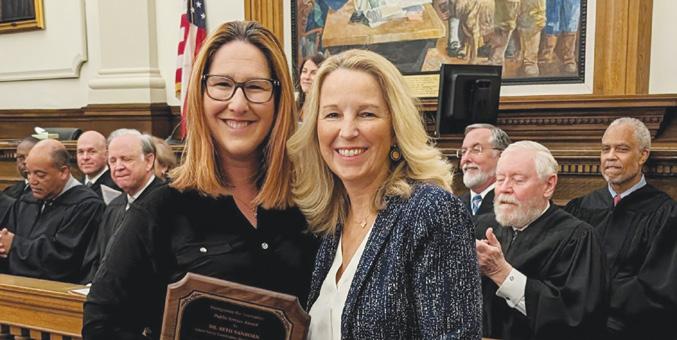
has provided outstanding service to Montgomery County citizens on a daily basis. The intent is to honor someone who is not just performing his or her job function but goes above and beyond what the job requires. This year’s recipient of the Courthouse Employee Award is Chief Deputy Adam Berry of the Montgomery County Sheriff’s Office. Always professional and approachable, Chief Berry is a vital component guarding the safety of his fellow employees and citizens, and he was thrilled to be honored.
Last but not least, Robert Sebia, chair of the MBA Young Lawyers Section, presented Lower Merion High School— Team 1 with the 2024 Mock Trial Award. Lower Merion High School continues to impress with its exemplary performance at the Mock Trials each year.
President Judge Carluccio closed the ceremony by expressing her gratitude to all attendees for their participation and support. Following the proceedings, all were invited back to the MBA Café for lunch, which provided networking and camaraderie among legal professionals, court staff, and community members.
The Montgomery Bar Association Law Day 2024 was a resounding success, reaffirming the legal community’s commitment to justice, democracy, and service. This important event served as a testament to the legal profession’s enduring values and essential role in advancing a fair and just society.
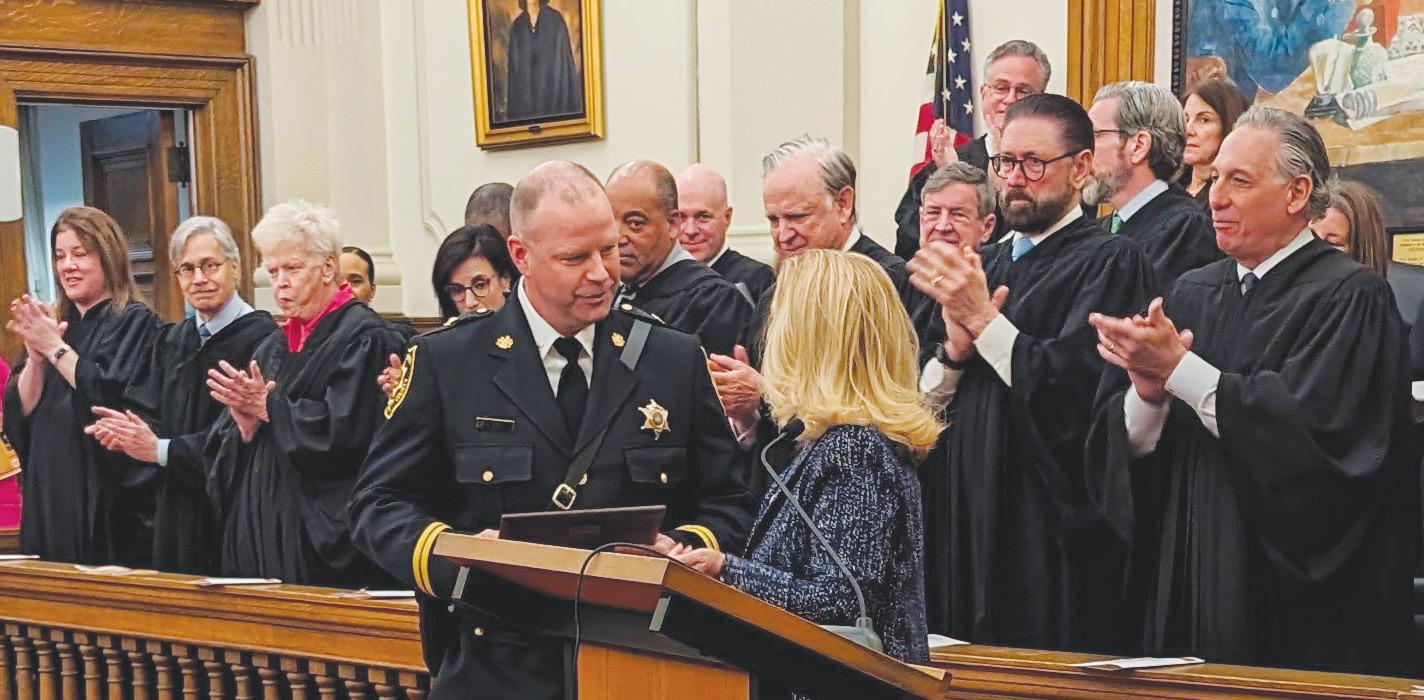
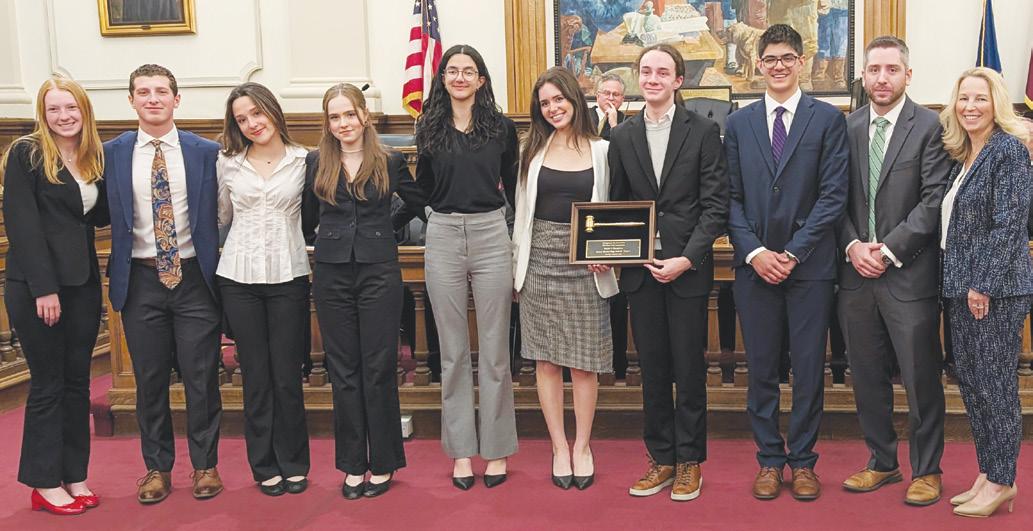
Natalie Slavens Abbott, Esq.
Julie Owsik Ackerman, Esq.
Yashar Alizadeh, Esq.
Richard P. Almquist, Jr., Esq.
Laurel Anderson, Esq.
Rhonda M. Anderson, Esq.
Emily Jane Angst, Esq.
Michael David Attryde, Esq.
Ashley Nicole Baker, Esq.
Kila B. Baldwin, Esq.
Steven T. Bara, Esq.
Stephen P. Barson, Esq.
Zachary Bartman, Esq.
Anthony John Beldecos, Esq.
Michael Berkowitz, Esq.
Sydney Danielle Betts, Esq.
Chade Biney-Amissah, Esq.
Amanda Boardman, Esq.
George W. Bodenger, Esq.
Derek Joseph Brandt, Esq.
Madelaine Braver, Esq.
Andre Phillip Brown, Esq.
Howard Brod Brownstein, Esq.
Chastity Carter Bruno, Esq.
Aaron Bryant, Esq.
Zachary R Burd, Esq.
Charles L. Burrows, Esq.
Kathryn Clare Coviello Cacciamani, Esq.
Joseph Paul Canuso, Esq.
Felicia G. Carter, Esq.
Jillian S. Casarella, Esq.
Michael J. Chimes, Esq.
Mary Kay Costello, Esq.
Christine Carey Cregar, Esq.
Nicole Danner, Esq.
John W. Deming, Esq.
Alexander August DeNardo, Esq.
Mark Cameron Derner, Esq.
Luciano P. DiElsi, Esq.
Frank TJ Dillon, Esq.
Edward DiPietro, Jr.
Patrick J. Donovan, Esq.
Sharon B. Eckstein, Esq.
Jillian M. Emerson, Esq.
Jennifer Feld, Esq.
Elizabeth L. Ferraro, Esq.
Yasmine Finnegan, Esq.
Laurie A. Fiore, Esq.
Joshua David Fisher, Esq.
Caitlin Foley, Esq.
Delann N. Fraschetti Finch, Esq.
Noelle M. Gambale, Esq.
Kyle Garabedian, Esq.
Ashley Garland, Esq., Esq.
Robert Byrne George, Esq.
Richard P. Gilly, Esq.
Anthony F. Godshall, Esq.
Richard A. Godshall, Esq.
Andrew M. Hansen, Esq.
Mariah Heinzerling, Esq.
Danielle Hollaway Hartt, Esq.
Carolyn Elaine Johnson, Esq.
Nathaniel Jordan, Esq.
Tyler E. Kaestner, Esq.
David A. Keightly, Jr., Esq.
Reid Kemena, Esq.
J. Kurtis Kline, Esq.
Sally Kocher Miller, Esq.
Trevor J. Lahoz, Esq.
Jeff Laudenbach, Esq.
Tina Lawson, Esq.
Katherine Lekh, Esq.
Peter Limburg, Esq.
Christine Pierce Lora, Esq.
Christopher P. Lynett, Esq.
Margaret C. MacDonald, Esq.
Matthew T. Macken, Esq.
Neil K. Makhija, Esq.
Karen Conn Mavros, Esq.
Lark Alexandria McAllister, Esq.
Bridget C. McCullough, Esq.
Brennen Arthur McCurdy, Esq.
D. Wesley Meehan, Esq.
Mary Beth Melso, Esq.
Ryan Michaleski, Esq.
Philip M. Mintz, Esq.
Sara A. Mohamed, Esq.
Douglas Thomas Mormello, Jr., Esq.
Madison Morton, Esq.
Ali S. Munshi, Esq.
Niayla-dia Murray, Esq.
Tiffany Nicholson, Esq.
Brianna D. O’Donnell, Esq.
Henry Orlowski-Scherer, Esq.
Stephen M. Panik, III, Esq.
Sonal Parekh, Esq.
Helee Mukesh Patel, Esq.
Anthony M. Petro, Esq.
Emily G. Pittenger, Esq.
Paul Pruitt, Esq.
Elizabeth Rafter, Esq.
Nicholas N. Rausch, Esq.
Benjamin P. Reichner, Esq.
Jordan Christopher Rhone, Esq.
Alexandra Jean Robinson, Esq.
Blair Rohlfing, Esq.
Kristen A. Rosa Houlahan, Esq.
Hilary F. Rosenberg, Esq.
Robert Evan Rosenthal, Esq.
David J. Rumbelow, Esq.
Erin K. Russell, Esq.
Keenan Safadi, Esq.
Caitlin Shortridge, Esq.
Andrew Skomorucha, Esq.
Jared Slipman, Esq.
Lewis D. Sorokin, Esq.
Thomas Andrew Spisak-Mosher, III, Esq.
Megan Stenstrom, Esq.
Christopher J. Stratigeas, Esq.
Kevin F. Sweeney, Esq.
Christian G. Taffe, Esq.
Karen Razler Thek, Esq.
Devin Uqdah, Esq.
Ramón Urteaga, Esq.
Emily Vener-Giszter, Esq.
Margot S. Weitz, Esq.
Allison Wickman, Esq.
Jamie Theresa Wiggins, Esq.
Larissa Marie Wright, Esq.
Yulianna Yagoudaeva, Esq.
Dan Yosipovitch, Esq.
Roxanne Zhilo, Esq.
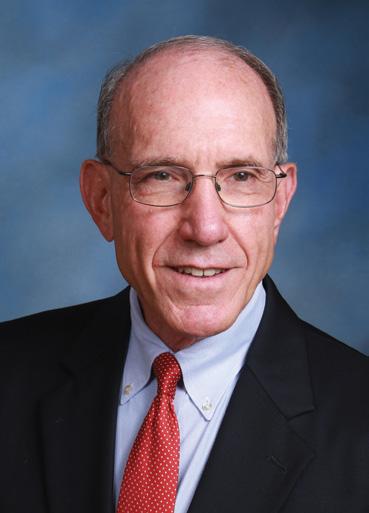
Iam a self-admitted foodie with one of my favorite shows being Top Chef.
During Season 11 in 2014, my wife and I became fans of a Philadelphia contestant. That chef was Nick Elmi who went on to win that season. Before it was announced he had won, we went to his new restaurant, Laurel, located on East Passyunk Avenue. The food was simply amazing. However, once it was announced that he had won, it became impossible to get a reservation. Thus, when I learned that he was opening a restaurant in the suburbs in Bala Cynwyd, I could not wait.
Lark is located on the 7th floor of the Residence Inn at the Ironworks at Pencoyd Landing across the river from Manayunk. Upon exiting the elevator, you enter an expansive dining room with a large bar area. A review of the menu indicates the numerous Happy Hour offerings. What makes the space even more special is the terrace seating which provides you views of the Schuykill River where it splits Manayunk from Bala Cynwyd. Our waiter informed us that the terrace would be opening for dining by the end of the month. The option to sit outside with your cocktails is also available.
Our waiter indicated that the menu is seasonal so it changes at different times of the year. The menu for Lark is broken into three sections. When I questioned our waiter about ordering three courses, his response was simply that the food was

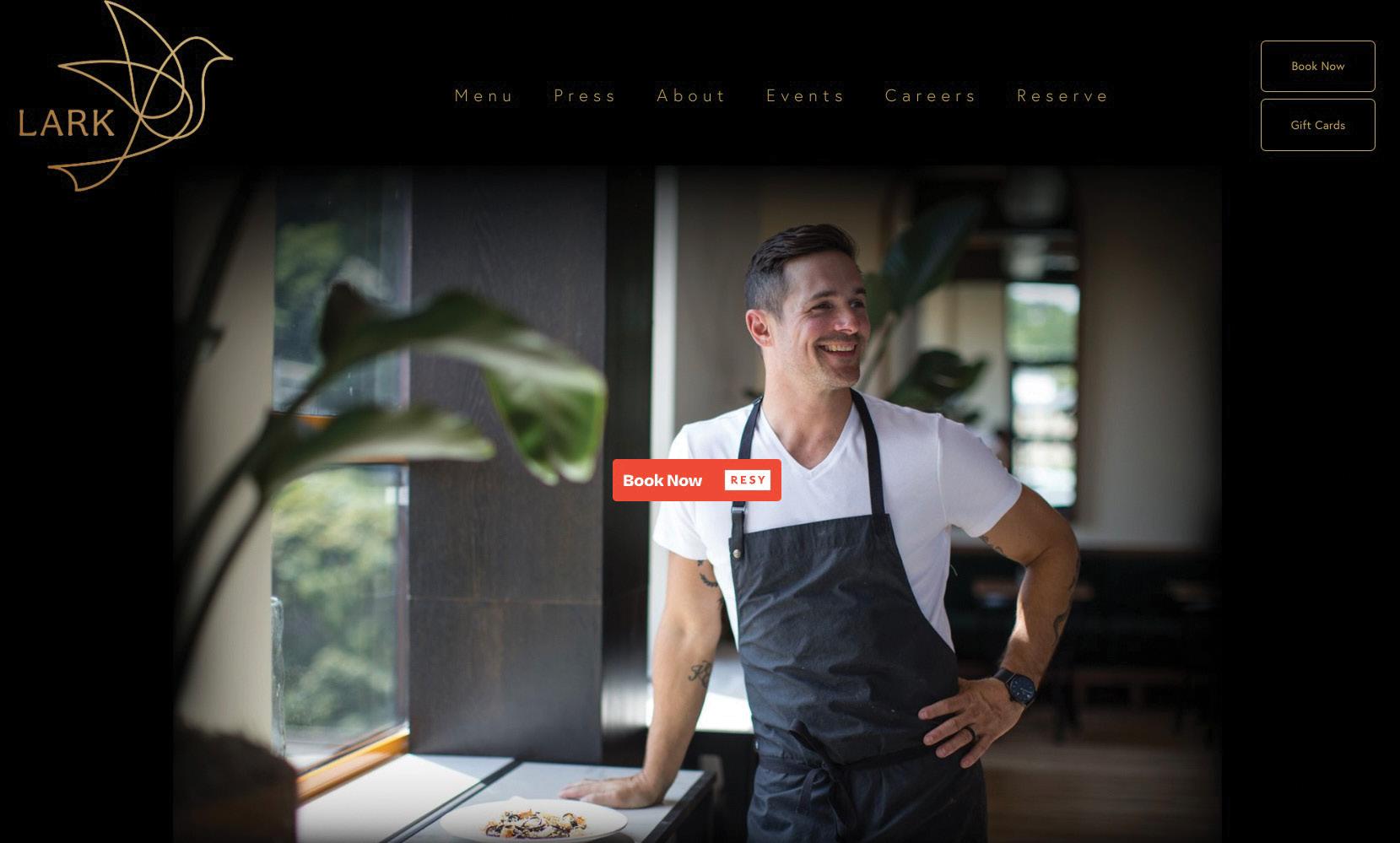
so special that it was worth getting three courses. We did and he was right. The first section of the menu is the appetizers. It was difficult to choose one but I went with the sumac glazed octopus with black olives and prosciutto crumble. The octopus was cooked tender and combined perfectly with the accompanying sauce. My wife chose as her first course the gnocco fritto with prosciutto and ricotta. The gnocco, which are savory puffy fried beignets, when combined with the prosciutto and ricotta, made for a delicious bite. Other choices include yellowfin tuna crudo, escargot and farro miso glazed eggplant.
We then moved onto the second course which were all pasta dishes. There are only five choices in this category. My wife had the mushroom ravioli with foie gras, hazelnut, mugolio and parmigiano reggiano. This was the best bite of the meal. Not only were there mushrooms inside, our waiter told us it was also infused in the pasta. If you go to Lark, this is a must. My pasta choice was the bucatini alla puttanesca with mussels, preserved tomato and bonito bread crumbs. The gravy was nicely spiced but not too overwhelming. The pasta was cooked perfectly. Other choices include campanelle with pork cheek ragu, pumpkin mezzaluna in brown butter sage and taleggio agnolotti.
Onto to the third course. As with the pasta, this section is limited in the number of options. There were two choices
611 Righters Ferry Rd. Bala Cynwyd, PA 19004
for meat and two for fish. We chose the meat dishes. My wife had the glazed duck breast. The duck was cooked perfectly and was tender with each bite. I chose the grilled Iberian pork chop with forest mushrooms, lentil balsamic braised onion and horseradish gremolata. As was the case with the duck, it was tender with each bite. The fish choices included grilled branzino and cider glazed scallops. Next time!!
When ordering, you should beware that the portions are generous. Though we were more than full, we felt we would be remiss if we did not sample at least one dessert. As with the courses, the choices were limited. We chose vanilla dulce de leche soft serve with miso caramel. With each bite, we swore it would be the last. Before we knew it, we had finished it, enjoying each bite along the way. The other choices were a brown sugar panna cotta and a chocolate hazelnut bar.
My understanding of the complexities of ingredients in a dish is limited at best so it is hard for me to explain in great detail the various components of each dish. However, what I do know is when something is delicious and everything ordered not only met that criteria but exceeded it. I highly recommend Lark. If you are looking for a meal for a special occasion, this is a wonderful choice. It may be out of the way but it is well worth the trip.

Ihave been reviewing books, mostly legal thrillers, for Sidebar for nine years. Before that, I have been a fan of the genre for decades. The Key to Justice might just be the best legal thriller I have ever read, including mine.
Dennis Castens’ first novel is a masterpiece. It starts out as a normal legal courtroom drama, but then has unexpected twists and turns that the designer of a roller coaster would envy. It includes realistic courtroom procedures and explanations for lay people, or lawyers who do not practice in court. It also includes corruption, and honorable actions, by government officials, judges, police, and prosecutors. There is IRS and government incompetence. There are clients who are truthful and those who are not.
As you can tell from the subtitle, Marc Kadella is our lawyer protagonist. He is a sole practitioner sharing office space with other attorneys who regularly talk about their cases with each other. Like many sole practitioners, Marc is living client fee-toclient fee, often not having enough money to cover his costs and provide an income. He takes any type of client, whether family law, criminal defendant, private or court-

appointed, a case against the IRS (more about that later), or anything else for which a client is willing to pay him.
Marc expresses early in the novel the frustration that sole practitioners often feel, when he finds himself “wondering when he would snap out of his funk, why he ever decided to go to law school and compound that stupidity with actually attempting to make a living at the practice of law.”
When someone tells Marc, “I’m not even sure he had a lawyer. I think it might’ve been a public defender guy,” Marc responds, “Public Defenders are lawyers and most of them are damn good ones.”
I contacted the author. Mr. Castens says that when he authored this novel, “I didn’t know what I was doing.” I respectfully disagree. Castens created a masterpiece in the legal thriller genre. Just when the reader thinks they know what is coming, there is a twist. Castens informed me that there are fourteen more on Amazon. “And, I believe they get better. I learned a lot as I did them.” If so, I believe I will be reading them all.
He also let me know the reason he wrote it the way he did. As a fan of the
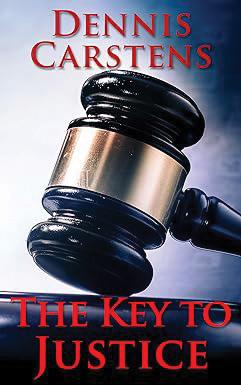
genre, Castens says, “I did it because I also like the genre and far too many authors seem to have never stepped foot in a courtroom. My goal was to write from the perspective of a struggling solo practitioner and what life is really like.”
Although the novel’s main court case involves the government accusing his client of being a serial rapist and murderer, there is an amusing case that continues through the novel involving Marc pursuing a case against the IRS on behalf of his soon-to-be ex-wife and himself. It involves the IRS not following the law but making judgments on convenience. And once the IRS is shown they are not following the law, they drag out the process of getting it right and providing legal fees. I asked Castens about this. His reply: “The IRS case is true and very factual; a case I did for my ex-wife and very poorly handled by the government. I was talked into including that story because everyone loves hearing about someone sticking it to the IRS.”
If you are looking for a legal thriller to read, I highly recommend The Key to Justice by Dennis Castens.
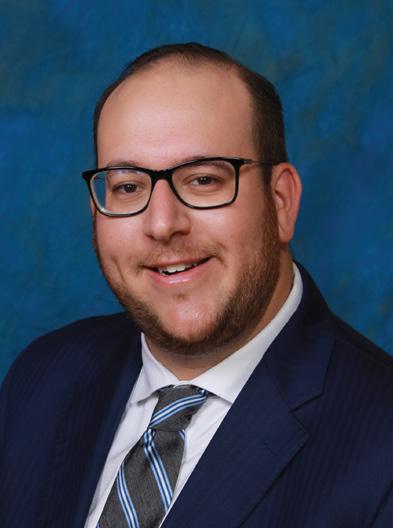
In the whimsical world of candy-coated fantasies, the name Willy Wonka reigns supreme. The iconic chocolatier has once again graced the silver screen in the latest musical rendition, “Wonka,” directed by the visionary Paul King. With a fresh take on the beloved tale, this film offers a delectable journey through the enigmatic confectioner’s origins, but it also serves up some unexpected legal morsels to chew on.
Before delving into the sugary depths of Wonka’s confectionary empire, it’s worth addressing the curious case of the adhesion contract that sets the stage for our protagonist’s adventures. In an imaginative twist of fate, Willy Wonka, portrayed with eccentric charm by the incomparable Timothee Chalamet, finds himself in need of lodging for the night. Little does he know, the quaint inn he stumbles upon comes with a caveat: an adhesion contract with more clauses than a licorice rope.
As we all are well aware, an adhesion contract is like a sticky toffee pudding of agreements. It’s a take-it-or-leave-it deal where one party holds all the power, leaving the other to simply sign on the dotted line or face the bitter taste of rejection. In Wonka’s case, his signature on this contract not only secures him
By Gregory Gilston, Esq.
a place to lay his head but also sets the stage for a series of legal hijinks that will leave audiences both entertained and contemplative.
Comparisons with the classic “Charlie and the Chocolate Factory” are inevitable, like comparing a traditional chocolate bar to a modern artisanal creation. While the original film, helmed by the legendary Gene Wilder, remains a timeless classic, “Wonka” offers a fresh take on the tale, injecting it with a vibrant energy that feels both nostalgic and new.
One of the most intriguing aspects of both films is the recurring theme of the adhesion contract. In the original, guests of the chocolate factory are required to

sign a contract before embarking on their unpredictable journey through Wonka’s sugary wonderland. It’s a clever device that underscores the eccentricity of Wonka himself, painting him as a creative and enigmatic figure with a penchant for legal theatrics.
In “Wonka,” this theme is given new depth as we witness the origins of Wonka’s fascination with contracts and
their binding nature. Through a series of flashback sequences, we gain insight into the events that shaped the chocolatier’s worldview, including his fateful encounter with the adhesion contract that would change his life forever.
But beyond the legal intricacies, “Wonka” is a visual feast for the senses. From the candy-coated landscapes of the city of chocolatiers to the larger-than-life characters that inhabit it, every frame is bursting with color and creativity. Special mention must be made of the toe-tapping sing-a-longs, which aid in bringing Wonka’s world to life in stunning detail.
Of course, no discussion of “Wonka” would be complete without acknowledging the stellar performances of its cast. Timothee Chalamet shines in the colorful role, infusing Wonka with just the right blend of whimsy and vulnerability. Opposite him, the talented ensemble cast, including the scene-stealing Hugh Grant as the mischievous Oompa-Loompa, brings a delightful energy to the film.
For those who have a sweet tooth, “Wonka” is a treat for audiences of all ages, blending legal intrigue with candycoated escapades in a way that only the world of Willy Wonka can. Whether you’re a die-hard fan of the original film or a newcomer to Wonka’s world, this cinematic confection is sure to leave you craving more. So, grab your golden ticket and prepare for a journey into a world where the only limit is your imagination. Just be sure to read the fine print before you sign anything. After all, you never know what delicious surprises await.

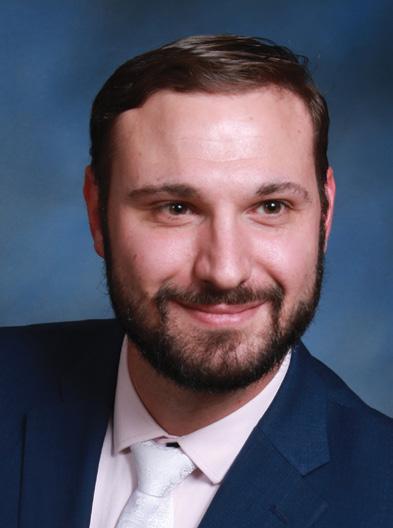 By Joseph A. Donegan, Esq.
By Joseph A. Donegan, Esq.
rotection From Abuse (PFA) matters are overwhelming for both plaintiffs and defendants. These trying times cause emotions to rise as fear, mistrust, and anger come to the surface. To make matters worse, these individuals are often placed in the same room waiting for their case to be heard. PFA matters have continued to inundate the Montgomery County Courthouse every Wednesday and Thursday. In 2023, there were 1,755 PFAs filed, and of those 1,755 cases, 1,009 of them involved unrepresented plaintiffs and defendants. If either party does not hire an attorney for this endeavor, they are left with two options: the Women’s Resource Center and the Friend of the Court program (FOTC). The Women’s Resource Center is a fantastic program, but they are limited in their roles and are stretched thin by assisting every case listed for a given day. This is where the Friend of the Court program shines.
The Friend of the Court program utilizes volunteer attorneys to attend PFA court to assist unrepresented parties in a legal capacity. Their goal is to assist these individuals with settling their PFA matter or notifying the court if the parties want to go to a hearing. This program has always been fortunate enough to have ample volunteers in the past. Recently, the program has experienced a decline in attorneys’ willingness to participate as a Friend of the Court. This decline in volunteers has led to an
increased number of cases without an attorney, thus causing strain on the legal system as well as the Women’s Resource Center.
If you are an attorney reading this article, I ask that you take a moment to let these statistics and implications set in. If you have not handled a PFA before, don’t worry; there is a video you have to watch before participating as a Friend of the Court. Additionally, this program will not require much of your time. Even if you volunteer once a month, that one time will ease the burden on other volunteers and give pro se individuals a voice as you assist them in reaching an amicable agreement. So, if you can spare one Wednesday or Thursday every few months, I ask that you use your positions as attorneys and volunteer to bolster this program and help those in their trying times.
For those willing to volunteer their time, you can find the training video and corresponding sign-up sheet through the Montgomery County Bar Association website at https://www. montgomerybar.org/?pg=family-law-section. Once complete, please email Mathew Gomez at mgomez@hangley.com if you have any questions and to be placed on the approved list of Friends.
 IBy Laurie R. Jubelirer, Esq.
IBy Laurie R. Jubelirer, Esq.
n a society where redemption often takes a backseat to punishment, the Participatory Defense movement stands as an unwavering beacon of hope and solidarity. The Participatory Defense movement serves to bring families dealing with criminal cases together, creating a united front of power and purpose to push back against the darkness and isolation the criminal justice system often fosters.
The Montgomery County Hub of Participatory Defense and the Reuniting Family Bail Fund were created in 2015. DeBug, the founding organization of the Participatory Defense movement located in San Jose, California, initially lacked a structured training model. However, after the development of comprehensive learning modules, the idea of Participatory Defense was able to extend its reach beyond California, hence allowing the idea to spread across the nation. The primary aim of Participatory Defense is to empower and educate individuals and families affected, either directly or indirectly, by the criminal justice system. This involves providing clarity on legal processes, teaching legal terminology, and lending a guiding hand through each step of a case’s progression. Although the organization does not consist of law professionals, being a part of the organization gives individuals access to a network of recommended lawyers. For
centuries, the system has operated without oversight, allowing disparities to slip by without consequences. Participatory Defense makes room to slow the process and allow other factors to be considered. It enhances accountability by scrutinizing cases more thoroughly, making sure system actors fulfill their roles, and excessive sentences are not given. To do this, volunteers from the organization participate in court watching, court support and post-conviction work.
The Reuniting Family Bail Fund also plays a big role in how the Montgomery County Hub of Participatory Defense supports the community. Most of the bail fund comes from grants, and only a minimal amount is from community donations. Executive Director Heather Lewis hopes to change this ratio and create more awareness for the Reuniting Family Bail Fund throughout the community. Lewis notes that she feels the organization’s message has been misconstrued in recent years to represent a desire for dismantling the police. However, she remains steadfast in her commitment to providing support and feels that if they can gain more support from the community and spread their true message, they can receive more funding and become a louder voice in fighting against injustice.
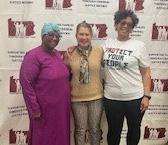
Two of the organization’s recent events particularly showcase the power of perseverance, love, and community support for families who are impacted by
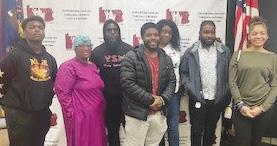
the criminal justice system. On December 18th, an event held in Norristown titled “Time Saved” took center stage, honoring individuals who had successfully completed all their requirements set forth by the criminal justice system. These remarkable individuals, having served their time, completed probation, and settled their fines and costs, were celebrated for their resilience and determination to turn their lives around. Speakers, including myself and families of the honorees, shared heartfelt stories of triumph over adversity. They spoke of the arduous journey these individuals undertook, highlighting the sacrifices made and the challenges overcome. Their words resonated with pride and admiration, underscoring the significance of moving forward and embracing a brighter future. Time Saved serves as an important reminder of the transformative power of second chances. In a world where all we see in the news are sensational stories about people accused and convicted of horrific crimes, it is refreshing to hear about individuals who turned their lives around after being given second chances. These people are newsworthy and should be applauded and valued in our community.
Fast forward to February 14th, where love was not just in the air but also in action. The “Love Bonds” fundraiser, also held in Norristown, raised money to bring together families who were separated or impacted by incarceration and exuded warmth and community spirit. Attendees enjoyed the camaraderie as they were treated with entertainment from comedians and artists, indulged in delectable food from local vendors, and participated in raffles, all in the name of a noble cause. With every dollar raised, the organization reaffirmed its dedication to providing bail assistance, legal support, and resources to families in need. Reflecting on these meaningful moments of togetherness, the importance of empathy and community in the criminal justice system is all the more apparent.
At the heart of these events lies an organization committed to providing solace and support to families navigating the complexities of the criminal justice system. Through weekly meetings and unwavering dedication, they build a bridge to a successful reentry to society and break the chain of recidivism while also ensuring that no family feels alone or helpless in their journey. Instead, they offer a lifeline of understanding, guidance, and solidarity, demonstrating that support is not just a notion but a tangible reality.
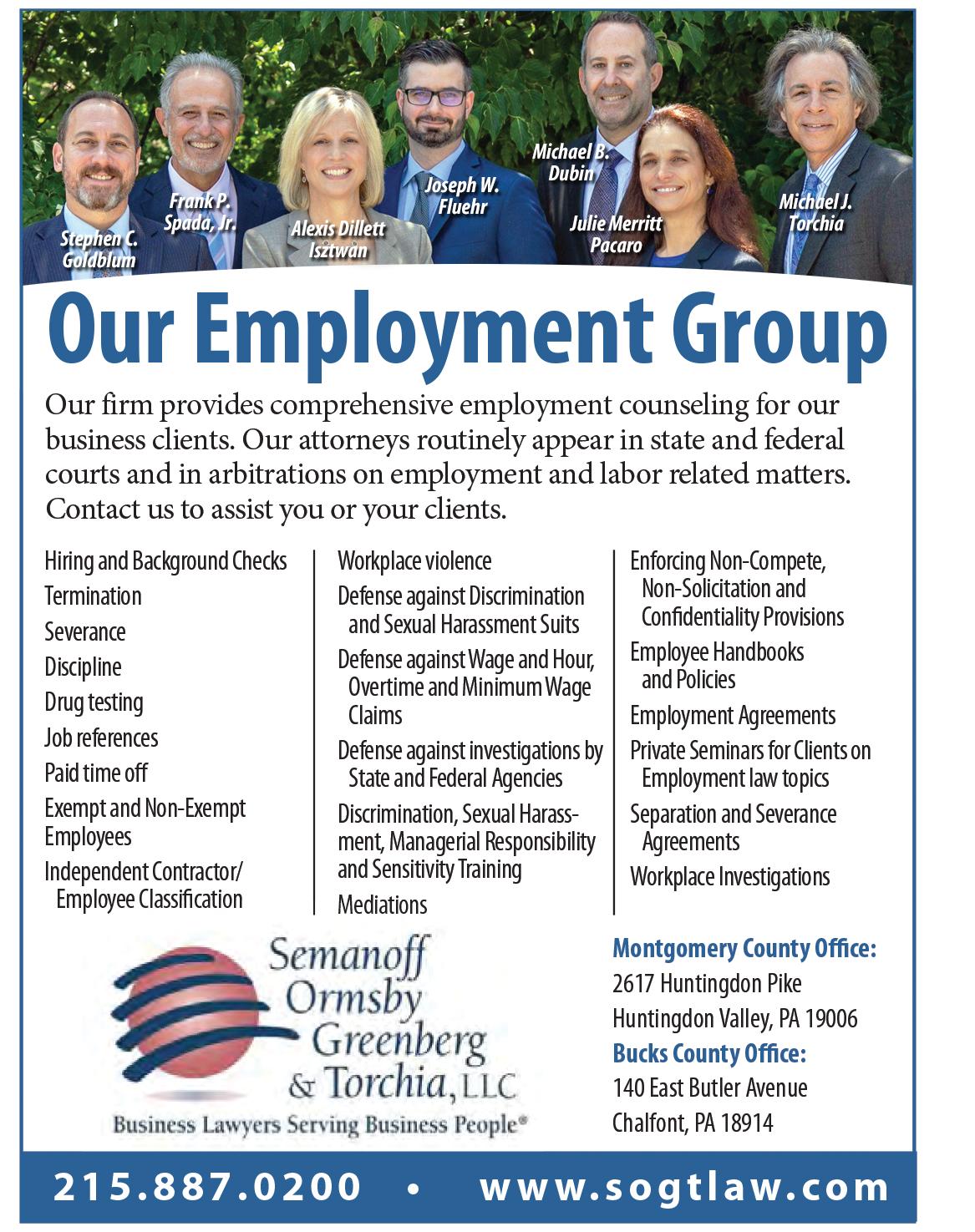
• Judge, Court of Judicial Discipline
• Former Chairman, Judicial Conduct Board of Pennsylvania
• Former Chairman, Disciplinary Board of the Supreme Court of Pennsylvania
• Former Chairman, Continuing Legal Education Board of the Supreme Court of Pennsylvania
• Former Chairman, Supreme Court of Pennsylvania Interest on Lawyers Trust Account Board
• Former Federal Prosecutor
• Selected by his peers as one of the top 100 Super Lawyers in PA and the top 100 Super Lawyers in Philadelphia
• Named by his peers as Best Lawyers in America 2022 and 2015 Philadelphia “Lawyer of the Year” Ethics and Professional Responsibility Law and Legal Malpractice Law
1500 Market Street, East Tower, Suite 1800 • Philadelphia, PA 19102 (215) 751-2863
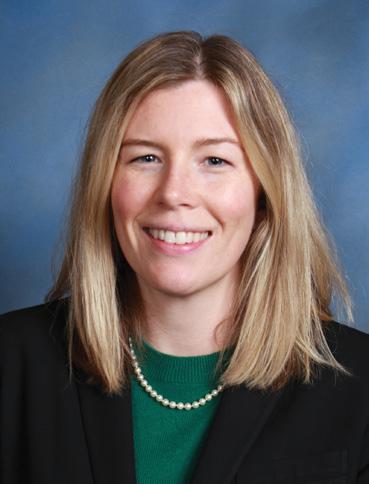
ver 40 attorneys attended a special Guardian ad Litem (GAL) training at the MBA in early April as the official “kick off” to a new pilot program being implemented by our Family Court.
In announcing the new program, Judge Daniel Clifford, Administrative Judge of Family Division, indicated that funding would now be available for Family Judges to appoint a Court Guardian Ad Litem (CGALS) in low, or no, income child custody cases. “The ability to appoint a CGAL in these types of custody cases will be immeasurably helpful both to our Judges and the families,” Judge Clifford stated in opening remarks at the CLE program.
Until now, Family Judges have relied on a small number of attorneys to serve as GALs on a pro-bono basis in custody cases where there are no financial resources for parents to pay for a GAL. “While we greatly appreciate the volunteerism of this small cadre of attorneys, over the course of many, many years, we should be able to provide compensation similar to the Court appointed GAL’s for children in our other Court divisions,” Judge Clifford stated.
The CGAL pilot program was submitted by Judge Clifford as part of the Court budgeting process which was ultimately approved by the County Commissioners in December 2023. Judge Clifford credited the Court Budget Committee, President Judge Carolyn Carluccio, Judge Thomas DelRicci, Judge Lois Murphy, Judge Steven O’Neill and Court Administrator Michael Kehs, for signing off on the pilot program and the County Commissioners for their ultimate approval. “No way this gets up and running without the initial support of that Committee and the leadership of PJ Carluccio,” Judge Clifford said.
For her part, President Judge Carluccio stated “We were happy to support this pilot program which we believe to be the first of its kind in Pennsylvania. A CGAL will be very beneficial to both assist our Family Judges in the disposition of their custody case and, at the same time, in serving the residents of Montgomery County.”
Starting May 1st, Family Judges may submit an application to the Family Court Administrative Judge to request the appointment of a CGAL in one of their assigned custody cases. Provided the case meets the criteria of the program, to benefit low or no income families, a flat fee of up to $1,000 will be provided to the CGAL upon completion of the appointment.
The inspiration for this program was motivated coming out of the COVID-19 Pandemic. “Our Family Judges started noticing a number of new circumstances coming out of Covid,” Judge Clifford stated. “First, we witnessed an increase in new custody cases. Since 2020, the number of new custody cases filed in Montgomery County increased by 16%. In 2023, there were over 4,000 new custody filings. In addition, we’ve observed a substantial rise in mental health issues impacting both parents and children. When you factor that into the overall contentiousness of custody cases, particularly those involving challenging issues such as school choice, vaccinations, housing instability and parental substance abuse, we are in desperate need of resources.”
Judges presiding over child custody cases are required to address sixteen (16) custody factors when awarding any form of custody. “The child’s emotional needs, educational needs and stability appear at least 3 times each throughout these 16 Factors; in addition to abuse and safety considerations. In cases with
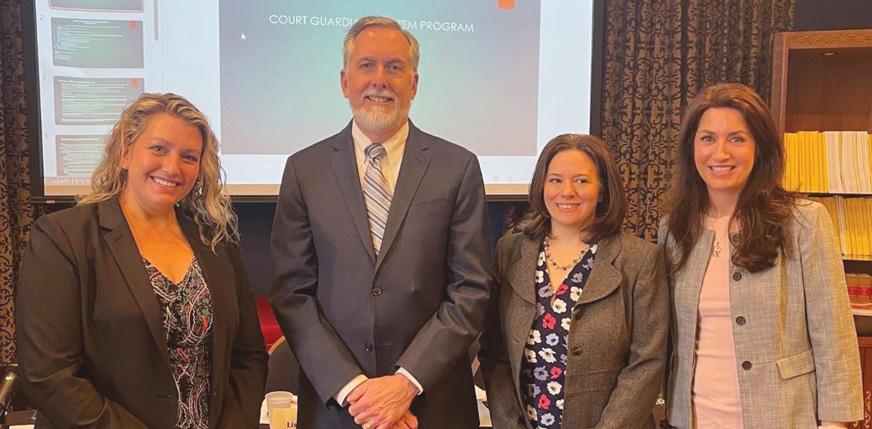
parents without counsel, and without any financial resources to retain a GAL, Judges are without any ability whatsoever to analyze these issues which require vital information from third parties. The Court does not have the resources to solicit this input on its own. A CGAL can do all of that and assist us in satisfying what the legislature envisioned in the statute,” Judge Clifford stated.
Sensitive to the concerns of some that a GAL may supplant the Judge’s role, Judge Clifford stated, “That’s not this program. The CGAL provides the vital information to the Judge. The Judge weighs the Factors and the Judge makes the decision.”
Relative to that goal, the CLE noted that GALs are authorized by Rule 1915.11-2 which was revised by the Supreme Court last year. GALs assist the Court with gathering information about the health and safety of the child’s home, the child’s academic progress, the child’s emotional health, the parent’s law enforcement records, and the availability and suitability of childcare. GALs can also interview third parties, including medical and mental health professionals, teachers and counselors, social service agencies, and child protective service agencies, as well as the litigants and the child. At the conclusion of this information-gathering process, the GAL provides a written report, which can often assist the parties to achieve a resolution of the case without the necessity of further litigation.
At the CLE launch of the program, Family Law Section Chair Liz Early remarked, “Having the insight of a neutral, child, focused professional is extremely valuable. We hope that this program will help us bring families out of the court system and encourage resolution with this access to an important resource.” Judge Clifford recognized FLS Chair Early, Lisa Kane
Brown, Christina DeMatteo and Kelley Fazzini in providing the Court with assistance in the implementation of the CGAL program as well as his former judicial law clerk, Mathew Gomez, in the preparation of the written budget proposal that was submitted and Court Clerk Chelsea Saylor for the forms.
Attorneys seeking to serve as a CGAL must complete an Application to Family Court Administrator, Cheryl Leslie, verifying the following information:
• Licensed and in good standing to practice law in the Commonwealth of Pennsylvania.
• Practiced family law for at least 2 years.
• Maintain professional liability insurance covering the duties of a GAL.
• Attended or viewed the CGAL training presented by the MBA.
• Obtained PA Child Abuse and Criminal background Clearances.
• Viewed the on-line mandated reporter training.
Given that this is a pilot program, CGALs will be asked to provide feedback to the Court, upon completing their assignment, to offer input and to assess the value of the program going forward.
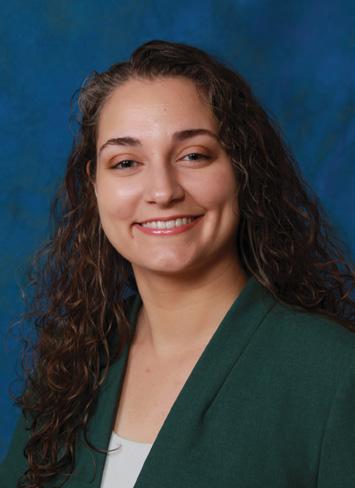

Act 61, formerly known as Senate Bill 506, was signed into law on December 14, 2023, by Governor Josh Shapiro. This Act marks a notable change in Pennsylvania guardianship law. This legislation was sponsored by Senator Lisa Baker, R-Luzerne, and Montgomery County’s very own Senator Art Haywood, D-Montgomery. Act 61’s goal is to prevent fraud, abuse, and exploitation, and increase representation of individuals who compose one of the most vulnerable populations – adult incapacitated persons. Pennsylvania, as of 2023, has more than 19,000 active guardianships.
Guardianships are similar in function to Powers of Attorney. In a Power of Attorney, the principal creates a document that appoints an Agent who is given certain authority to make decisions on behalf of the Principal. Depending on the type of Power of Attorney, these decisions could be medical or financial. Sometimes principals will create a Power of Attorney that is only effective upon their incapacity. This is otherwise known as a springing Power of Attorney.
A Guardian, on the other hand, is appointed by the Orphan’s Court. At this proceeding, the subject of the guardianship is declared incapacitated, meaning “an adult whose ability to receive and evaluate information effectively and communicate decisions in any way is impaired to such a significant extent that [they are] partially or totally unable to manage [their] financial resources or to meet essential requirements for [their] physical health and safety.” 20 Pa.C.S. §5501. If the alleged incapacitated person is found to be incapacitated, the Court must then decide whether the individual requires a guardian or if there is a least restrictive alternative. Least restrictive alternatives look for other forms of support for the incapacitated person, including, but not limited to, supported decision making, utilization of power of attorney documents, representative payees, ABLE accounts, etc. If there are no less restrictive alternatives, the court can appoint a guardian.
A Guardian, like the Power of Attorney, makes decisions on behalf of the incapacitated person, but those decisions are defined by Pennsylvania law. A Guardianship is split into two – there is a guardian of the estate, who handles the financials of the incapacitated person, and a guardian of the person, who handles the medical decisions of the incapacitated person. Both individuals may be the same, but each must maintain their own
distinct duties and requirements under the law. All guardians have a duty to act in the best interests of the incapacitated person they are appointed to assist. They have court oversight, e.g., yearly reports of the person and estate, and the requirement to seek court approval before expending any funds from the principal of the estate. In reviewing your client’s estate planning documents, you may find reference to a nomination of a guardian. This is merely a preference for whom your client would wish to act as a guardian, should one ever be needed. The person they nominate would still need to go through court to be appointed.
Guardianships typically come about due to an issue with the power of attorney (i.e., death of the only agent, limited authority provided in the power of attorney, etc.) or there being no power of attorney at all. Guardianship of incapacitated persons is a valuable tool to aid and protect individuals who are no longer capable of handling their own medical and financial affairs. With great power also comes instances of great abuse. Movies like I Care A Lot, A Series of Unfortunate Events, and The Glass House, while dramatized, provide a glimpse of the dark side of guardianships. In recent years, there have been news stories that unearth the deceit and abuse of several incapacitated individuals faced at the hands of their court appointed guardians.
Act 61 hopes to address those concerns and prevent abuses in the future.
The significant highlights of Act 61 focus on:
1)
Prior to this act, alleged incapacitated persons were not guaranteed legal representation during the guardianship hearing. This was more of an optional decision based on the Orphan’s Court judge the hearing was in front of. This meant that in some counties of Pennsylvania an alleged incapacitated person received no legal representation throughout the guardianship process. The alleged incapacitated person shouldered the legal proceeding on their own with no one to represent their interests in the Court.
Act 61 requires all Pennsylvania Orphan’s Courts to appoint an attorney to represent the alleged incapacitated person’s interests throughout all stages of the guardianship proceedings. This includes from the initial petition for and until the termination of
the guardianship. This appointment occurs whether or not the alleged incapacitated person can pay for this representation or not. Those petitioning the court for guardianship are required to notify the court at least seven days prior to the hearing if counsel has not been retained by or on behalf of the alleged incapacitated person. The act also allows for the alleged incapacitated person to hire their own attorney and, when the situation permits, the court to appoint a guardian ad litem to assist in the proceedings.
2) Clarification of the Role of Counsel for Alleged Incapacitated Persons
The Montgomery County Orphan’s Court has long appointed counsel for alleged incapacitated persons. In hand with the new mandatory legal representation for alleged incapacitated persons, Act 61 provides specific language related to the appointment of counsel. Court appointed counsel must be qualified either by their experience or training. Those representing alleged incapacitated persons must maintain as normal of an attorneyclient relationship as reasonably possible. Counsel must advocate for their client’s express wishes and instructions, to the extent the client is able to express their wishes or provide instructions on their representation.
Those appointed to represent the alleged incapacitated person must meet with their client as soon as reasonably possible after their appointment and within 5 days of that meeting and file with the Court a certification of the time and place that the meeting occurred.
3) Certification Requirements for Guardians
Act 61 institutes a certificate for individuals who are seeking guardianship of three or more incapacitated persons. The Supreme Court is tasked with prescribing the rules and forms necessary to effectuate the required certification process. The certification must be with a national nonprofit guardianship certification organization, which offers a comprehensive certification program for the guardian.
This certification can only be waived if a proposed guardian can provide an equivalent license or certification which shows the guardian is capable of fully, faithfully, and competently performing the obligations of guardian. Specifically, the Act notes a license to practice law does not constitute an equivalent license or certification.
4) Greater Emphasis and Analysis on Less Restrictive Alternatives
In preparing petitions for guardianship, petitions now must allege specific facts that demonstrate that less restrictive alternatives were considered or tried and why the alternatives are unavailable or insufficient.
During the pendency of the hearing, the court must make specific findings of fact, based on the evidentiary record of the absence of sufficient supports, including family or friends, and the insufficiency of each less restrictive alternative before ordering guardianships. The legislation provides several specific less restrictive alternatives, which include, but are not limited to:
• Advanced directives, such as durable powers of attorney or trusts.
• Living wills.
• Financial or healthcare powers of attorney.
• Healthcare representatives.
• Trusts, including special needs trusts.
• Representative payees for individuals receiving social security benefits.
• Pennsylvania achieving a better life experience (ABLE) account.
• Mental health advance directives.
The court must now prefer less restrictive alternatives to guardianship and limited guardianships prior to plenary permanent (fully fledged) guardianships. The legislation also makes a distinction of being declared incapacitated as separate and apart from the determination of whether a guardian should be appointed. A court can no longer use a determination of incapacity alone to justify the appointment of a guardian.
Act 61 institutes an automatic review hearing. If there is evidence presented during the guardianship proceeding that indicates the person’s incapacity may change in the future, the court must schedule a review hearing to determine whether the guardianship continues to be necessary. This review hearing must be scheduled for no later than a year from the date of the establishing of the guardianship. To determine whether the person’s incapacity may change, the court may consider several factors:
1. whether the end capacity could be adequately managed by medication, rehabilitation or other needs.
2. whether the potential exists for the incapacitated person to regain physical or cognitive capacity.
3. the opinion of a medical professional or other qualified expert who has personally examined the incapacitated person.
4. the circumstances of the incapacitated person’s daily living, including, but not limited to, support from others; and
5. any other factor indicating that the incapacitated person’s condition could improve at a future time.
A review hearing will also be scheduled if the incapacitated person, guardian, or any interested party petitions the court for such a hearing. Any interested person may also file a petition with the Court to terminate or modify the guardianship at any time following the issuance of the order establishing the guardianship.
If you are a practitioner in Orphan’s Court and handle any guardianship matters, you should familiarize yourself with Act 61 and the changes to the current guardianship law.
These new requirements will go into effect on June 14, 2024.

 By Stephen M. Geday, Esq., Co-Founder and CEO, EsquireX
By Stephen M. Geday, Esq., Co-Founder and CEO, EsquireX


What do we do when we’re overwhelmed with deadlines and client demands? Grind harder and embrace the pain? Turn away new work and make peace with the lost revenue? Dump more on overworked associates and burn them out? Hire new associates and hope for the best?
The demands of managing a solo practice or a small firm in particular can seem overwhelming. We don’t have armies of associates and departments teeming with every conceivable practice area. When we’re at our busiest, it seems like there’s no end in sight, but searching for a new hire is not only tedious but a risky commitment to additional overhead. After a decade of searching for the best ways to work smarter, not just harder, I realized that we as a community are each other’s most valuable resource. Thus was born EsquireX: a platform designed to seamlessly connect attorneys to work with each other on a shortterm or long-term basis. One can work with qualified attorneys nationwide, and through our unique MBA access portal, with vetted, fellow MBA members specifically.

• Corporate Trustee
• Successor Trustee
• Co-Trustee
• Investment Management
• Tax Preperation
EsquireX offers you the flexibility to scale your practice on your terms. During peak periods is the worst time to divert your attention to a clunky, long-term hiring process. Also, that’s like going grocery shopping when you’re hungry. But grinding harder and pushing through is not only exhausting, but builds no prospects for scaling or refinement of your processes or systems. Instead of feeling overwhelmed and overworked, you can use EsquireX to manage your workload more effectively, allowing you to take on more work without any additional overhead commitments.
One of the unique features of EsquireX is the opportunity to build long-term relationships with attorneys eager to work. By working with them on multiple projects, one can evaluate their skills, professionalism, and fit for one’s practice. This ensures that when you decide to hire someone permanently, you’re making an informed decision based on personal experience with them and no guesses as to their track record. This way, the busier you get, the more projects you assign, the more attorneys you work with, and the greater your qualified candidate pool grows along the way.


What happens when a case requires a touchpoint of expertise outside your standard practice areas? Decline representation? Refer the entire matter out? Hire someone forever with that skill set? By leveraging EsquireX, you can instantly tap into a network of attorneys who have the skills and experience to enhance your firm’s capabilities.
By planning to outsource work during your busiest periods while maintaining case control and building the client relationship, you can increase your efficiency and productivity, leading to better outcomes for your clients and a more fulfilling practice for yourself.
I invite you to join your colleagues, and look forward to seeing you on EsquireX.
Marc D. Jonas, Esq., and Zachary A. Sivertsen, Esq., attorneys with Eastburn and Gray, PC, participated in the 2024 Pennsylvania State Association of Township Solicitors (PSATS) Spring Conference on April 15, 2024. The seminar, entitled “Zoning Anomalies,” covered a number of zoning anomalies created by everyday encounters in both zoning and subdivision/ land development matters. These include the interplay between the Pennsylvania Municipalities Planning Code with the Sunshine Act and such issues as the role of the public, notice requirements, what constitutes a land use decision, and more. Mr. Jonas and Mr. Sivertsen engaged the roomful of municipal attorneys in lively discussions of these important land use topics.
Hamburg, Rubin, Mullin, Maxwell & Lupin is pleased to announce that John F. McCaul and Danielle M.Yacono have been elected to partnership in the firm.

High Swartz LLP is pleased to announce that Matthew T. Hovey has been named partner. Matthew T. Hovey, a seasoned municipal attorney with a focus on civil litigation, zoning, land use, and real estate, has been a valuable member of High Swartz since 2021. His promotion reflects his dedication and contributions to the firm.
Alex Baumler has been promoted to Shareholder at Kilkenny Law. Alex is an accomplished attorney with a dedication to public service. In his practice, Alex handles a wide variety of municipal, zoning, land use, open space, condemnations, subdivision and land development, and lien matters for municipal and private clients.
Timoney Knox LLP is pleased to announce the arrival of Roman J. Koropey, principal of Main Line Law Associates, as Of Counsel to the firm.
Timoney Knox LLP is pleased to welcome Tiffany Nicholson, Elizabeth Ferraro and Joshua Fisher, who recently joined the firm as associate attorneys.
Hamburg, Rubin, Mullin, Maxwell & Lupin is pleased to announce Celso L. Leite, Jr. has joined the firm’s Real Estate and Land Use Department.
Hamburg, Rubin, Mullin, Maxwell & Lupin is pleased to announce that John F. McCaul has been elected to the board of directors for the MontCo Anti-Hunger Network (MAHN).
Wisler Pearlstine, LLP, is pleased to announce Carla Marino, a respected Chester County attorney, has joined our firm as a partner in the Family Law practice.
The events and dates below are subject to change and this is not a comprehensive list.
June 20th – 12-1:30 PM CLE: Zoning Hearing Board-Issues in Practices and Procedures –Montgomery Bar Association
June 20th – 5-7 PM Get In the Loop Happy Hour@Taphouse 23 (266 East 4th Street, Bridgeport, PA 19405)
June 24th – 12-6:30 PM Legal Aid Golf Classic – Green Valley Country Club (201 Ridge Pike, Lafayette Hill, PA 19444)
June 26th – 12-1:30 PM CLE: The Do’s and Don’ts of Appellate Practice – Featuring Two PA Supreme Court Justices: Justice Kevin M. Dougherty and Justice Daniel D. McCaffery –Montgomery Bar Association
June 28th – 10-10:30 AM New Member Pop-In Meeting – Zoom
July 18th – 5-7 PM Get in the Loop Happy Hour – Stove & Tap (329 W. Main Street Lansdale, PA 19446)
July 23rd – 4:00-6:00 PM The Robert E. Slota Summer 1L Diversity Program Closing Reception
August 14th – 5-7 PM Get in the Loop Happy Hour – J.J. Ratigan Brewing Company (227 E. High Street, Pottstown, PA 19464)
August 23rd – 10-10:30 AM New Member Pop-In Meeting – Zoom
September 13-15
Bench Bar Conference – Annapolis, Maryland (The Westin Annapolis,100 Westgate Circle, Annapolis, MD 21401)
September 25 – 8:30-10AM New Member Breakfast +CLE – Montgomery Bar Association
Please visit the Events page on www.montgomerybar.org for an up-to-date list of current events.


